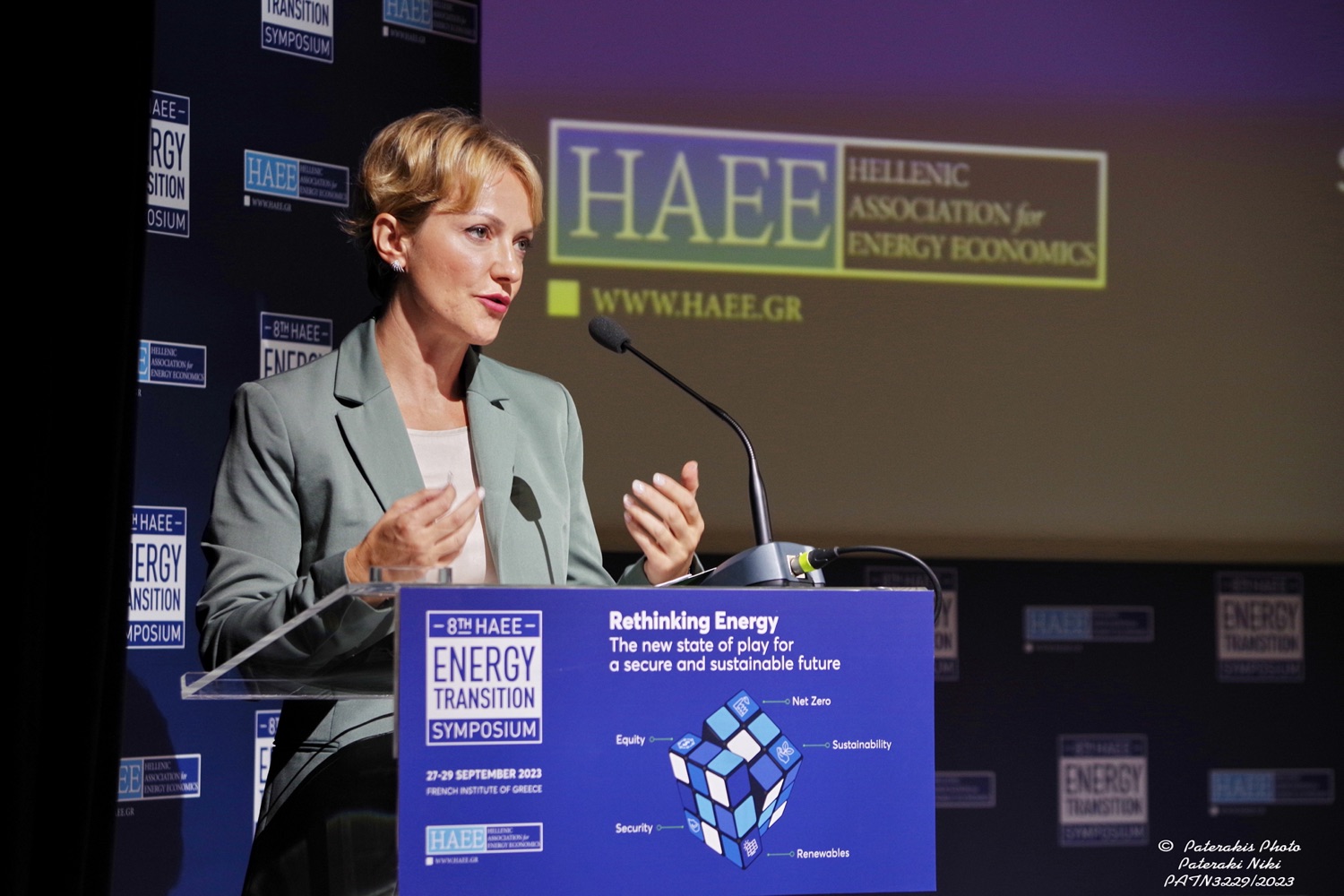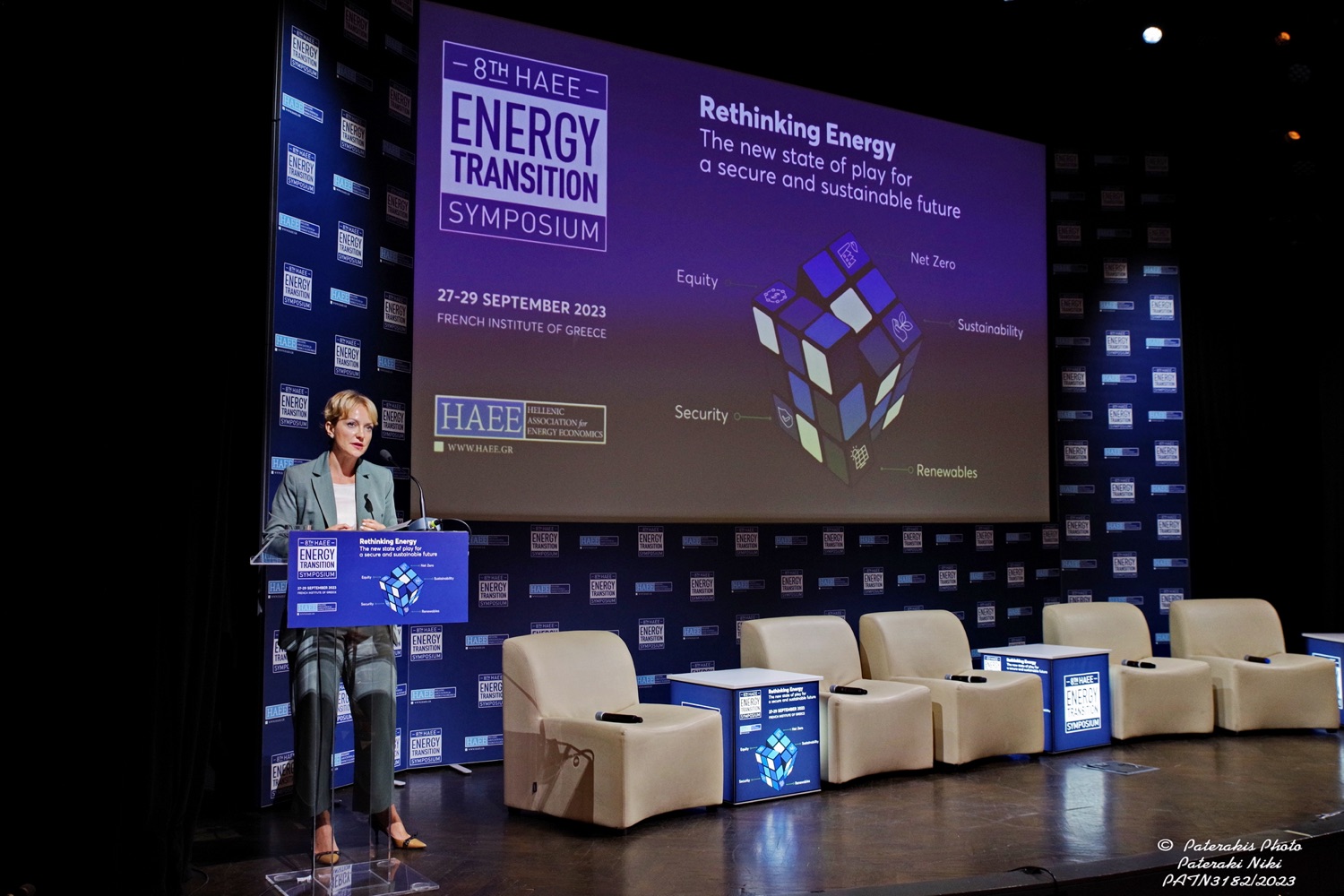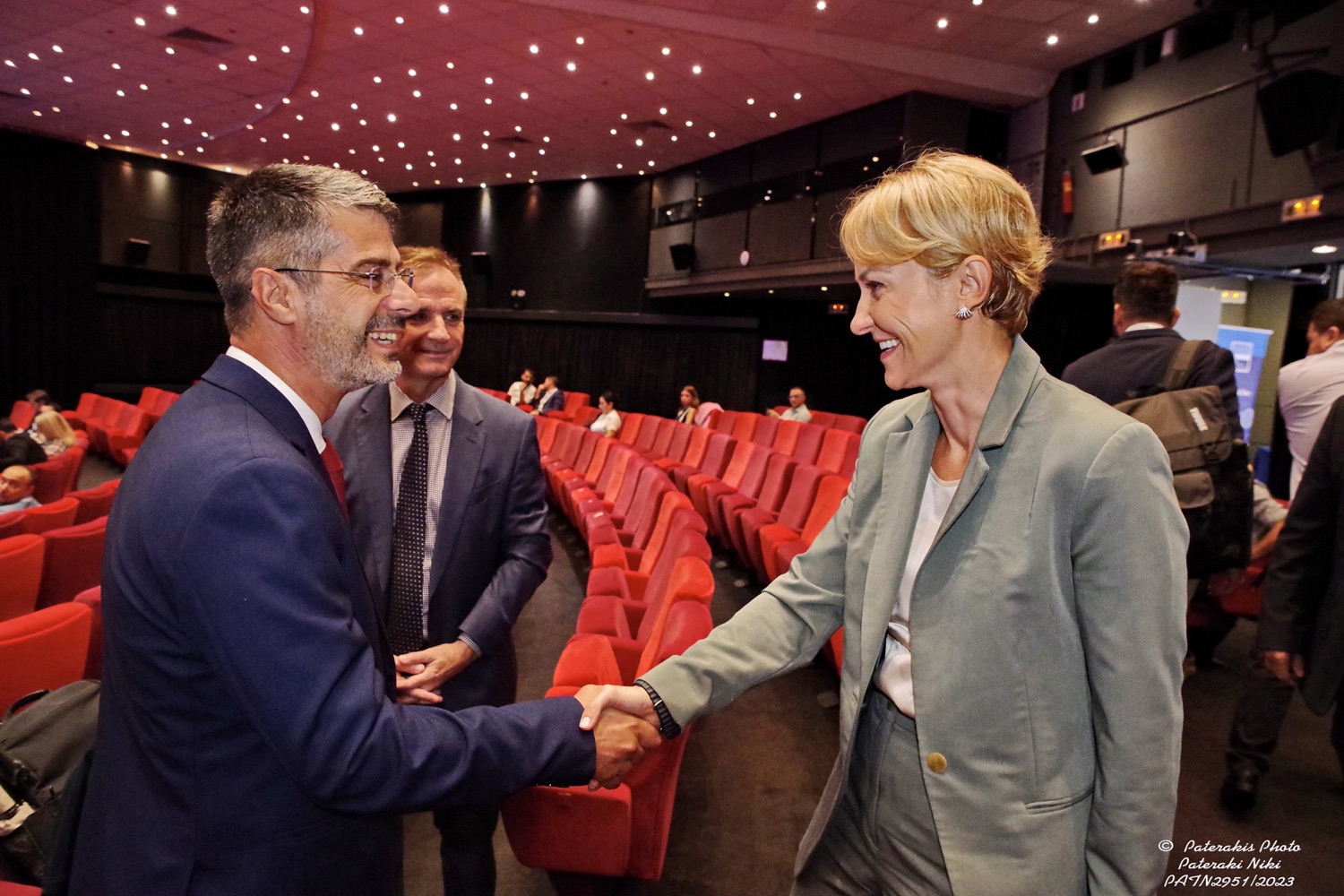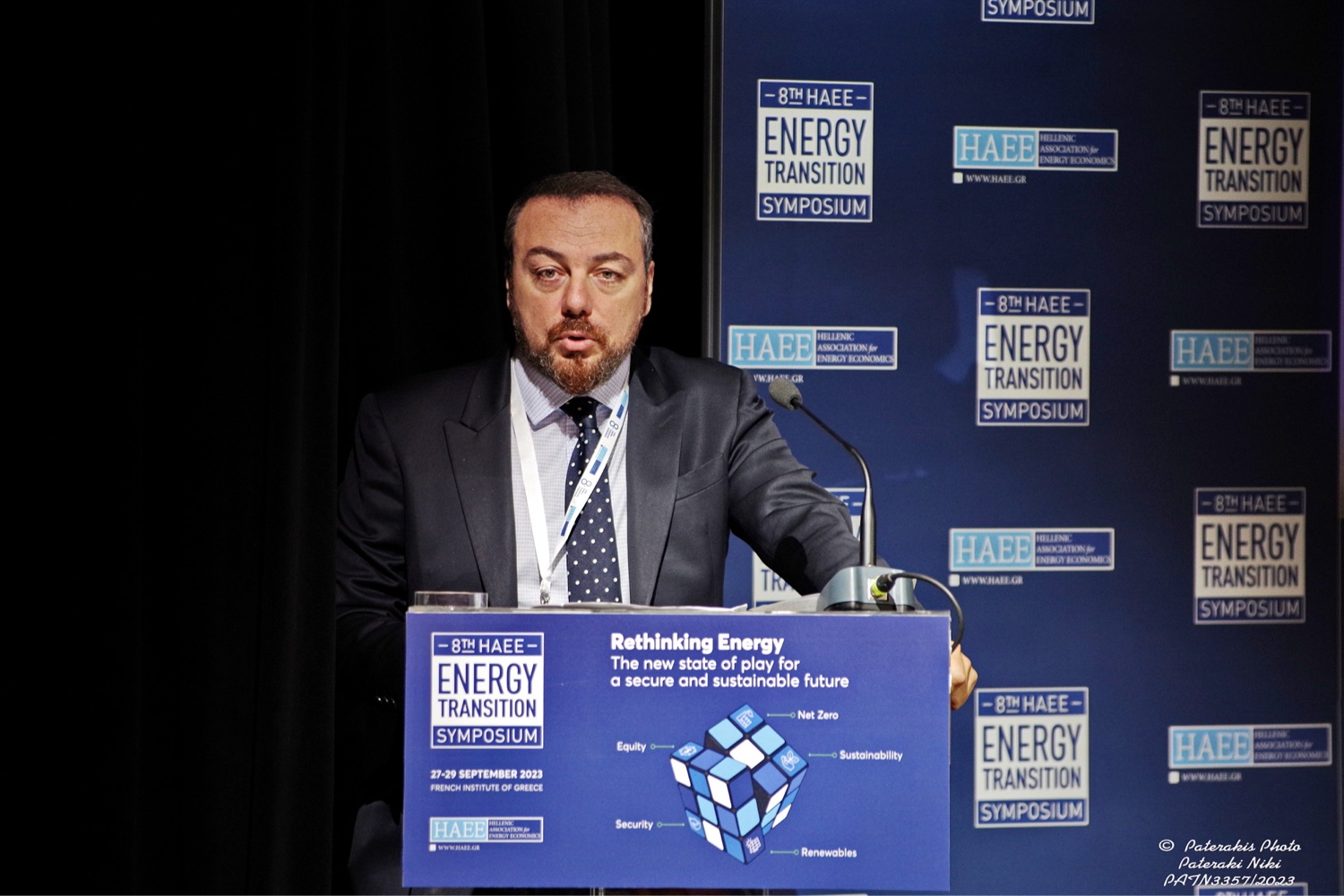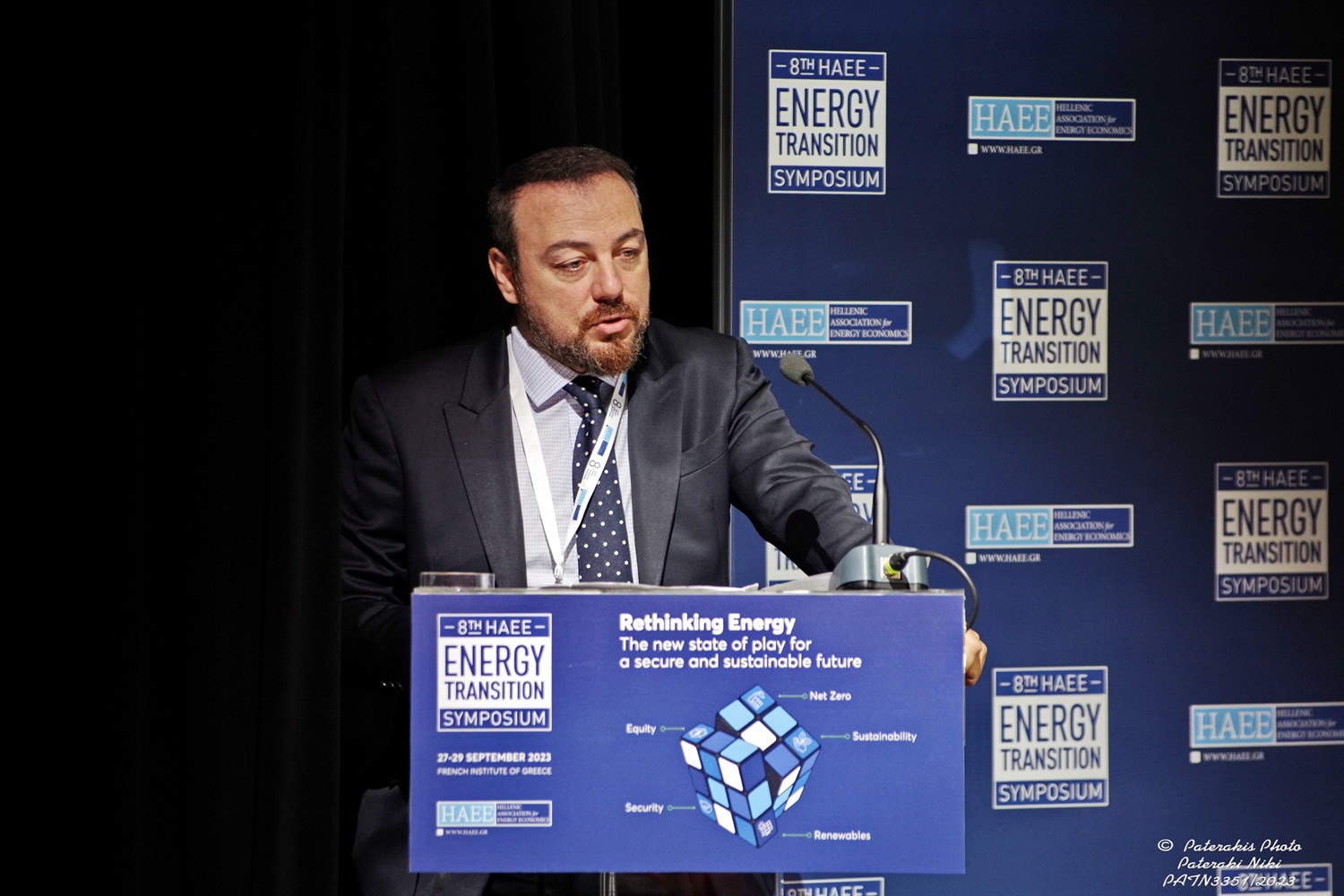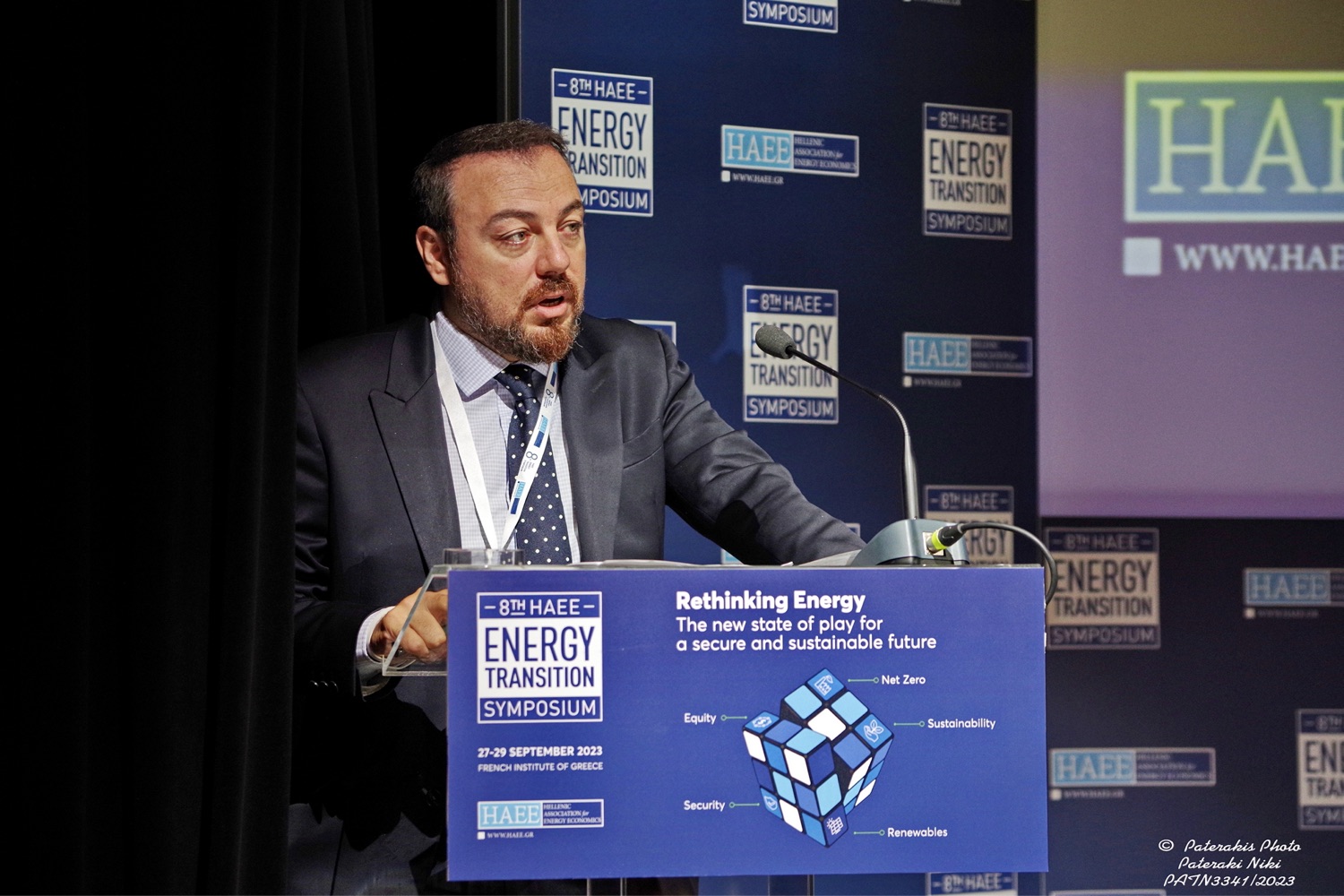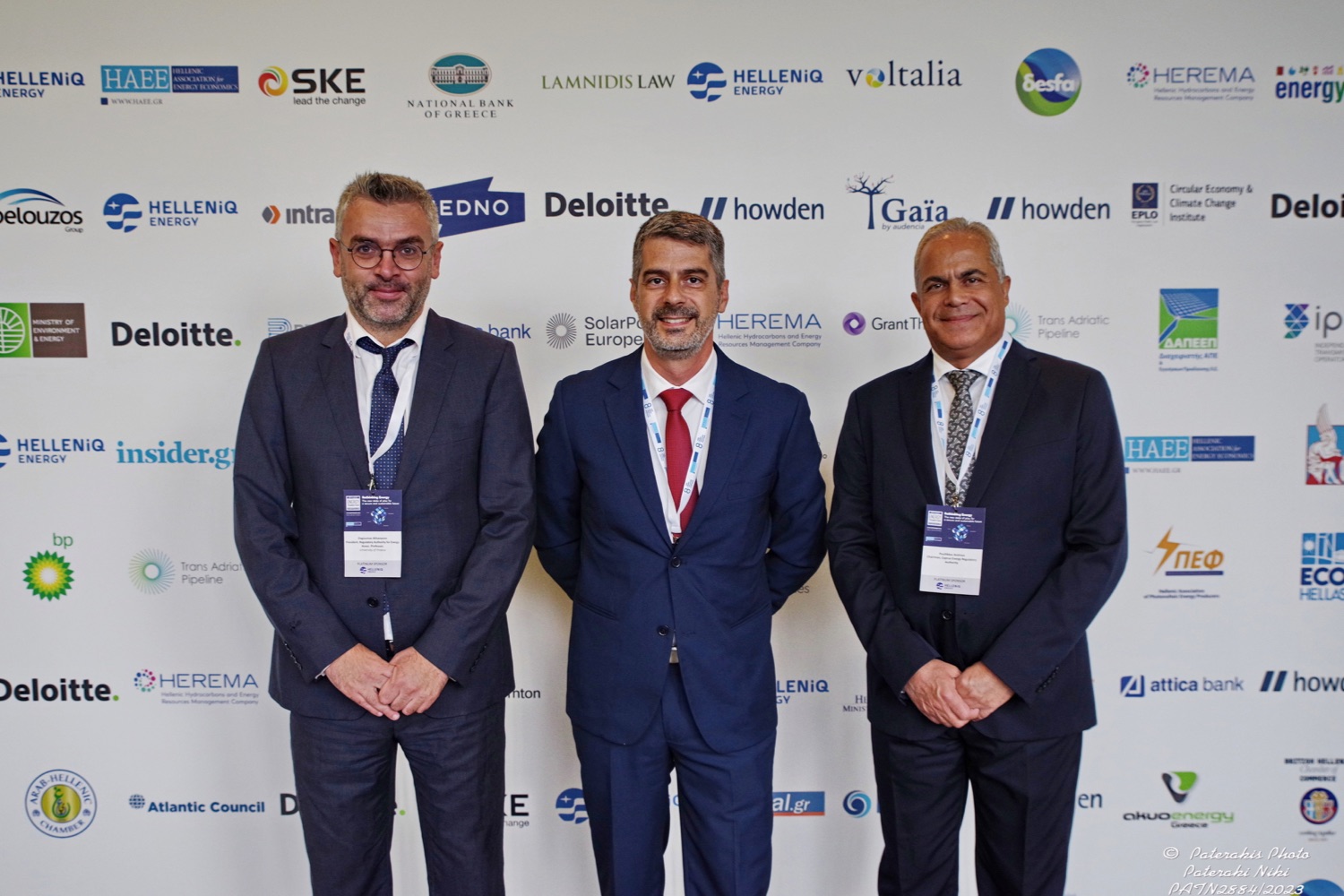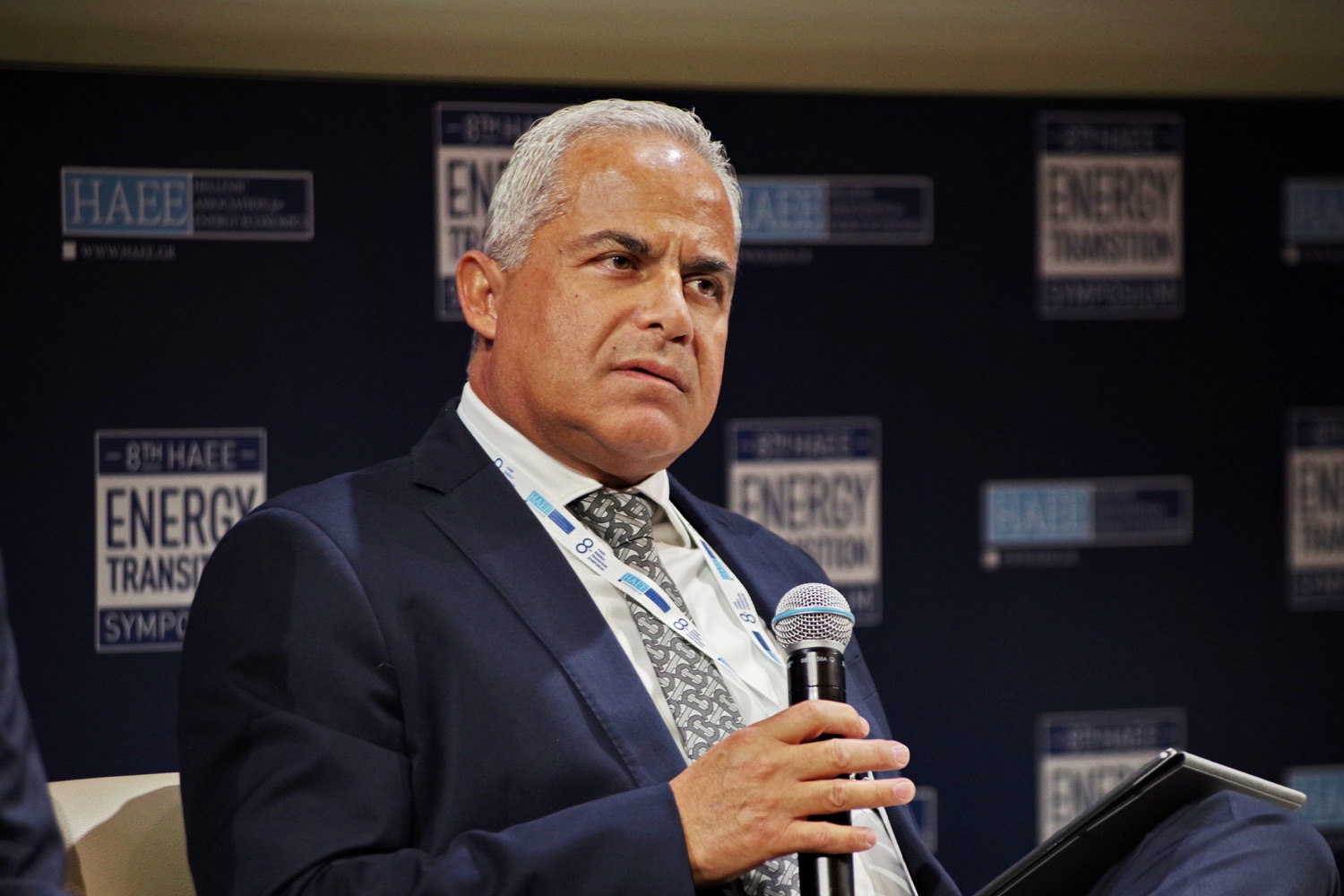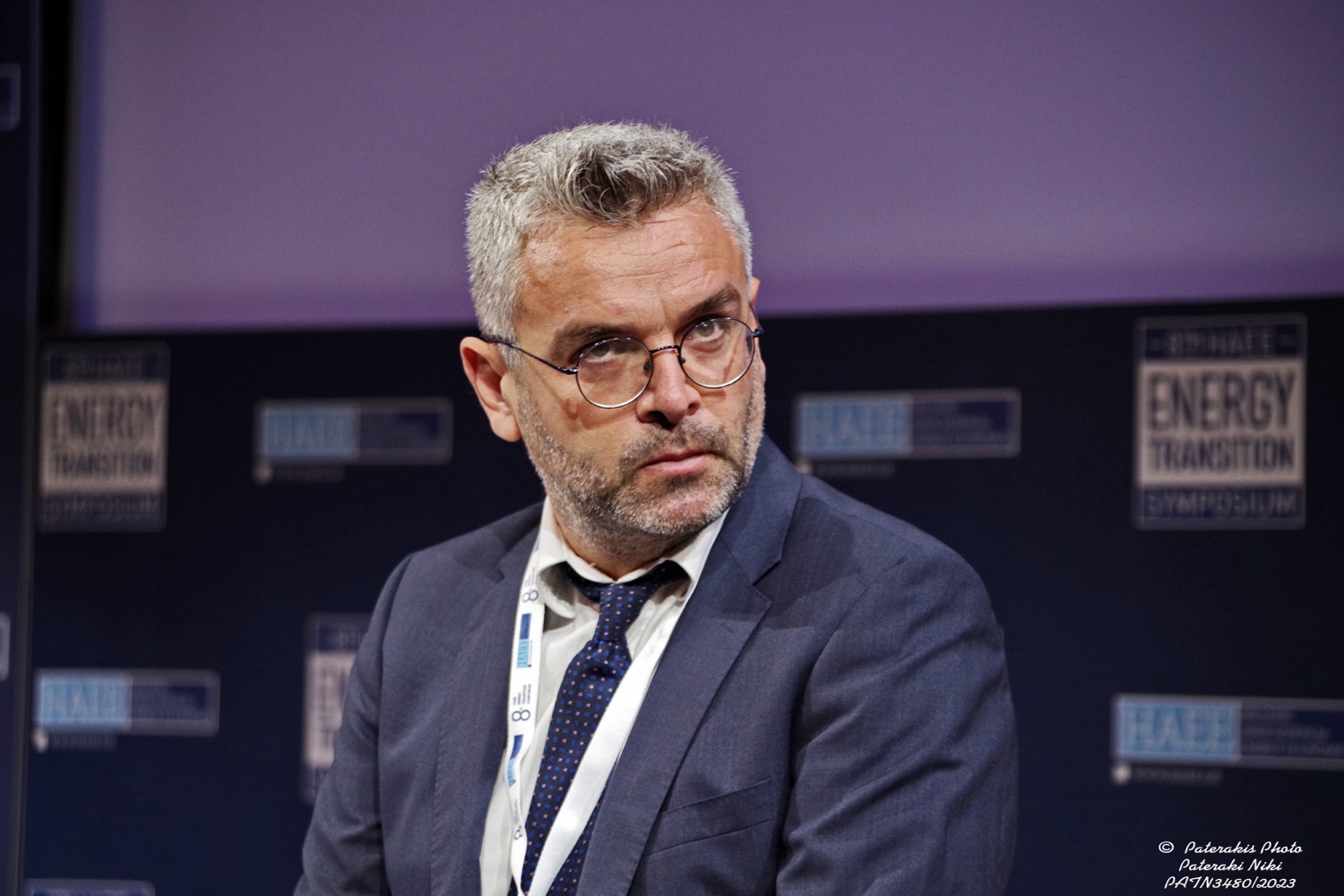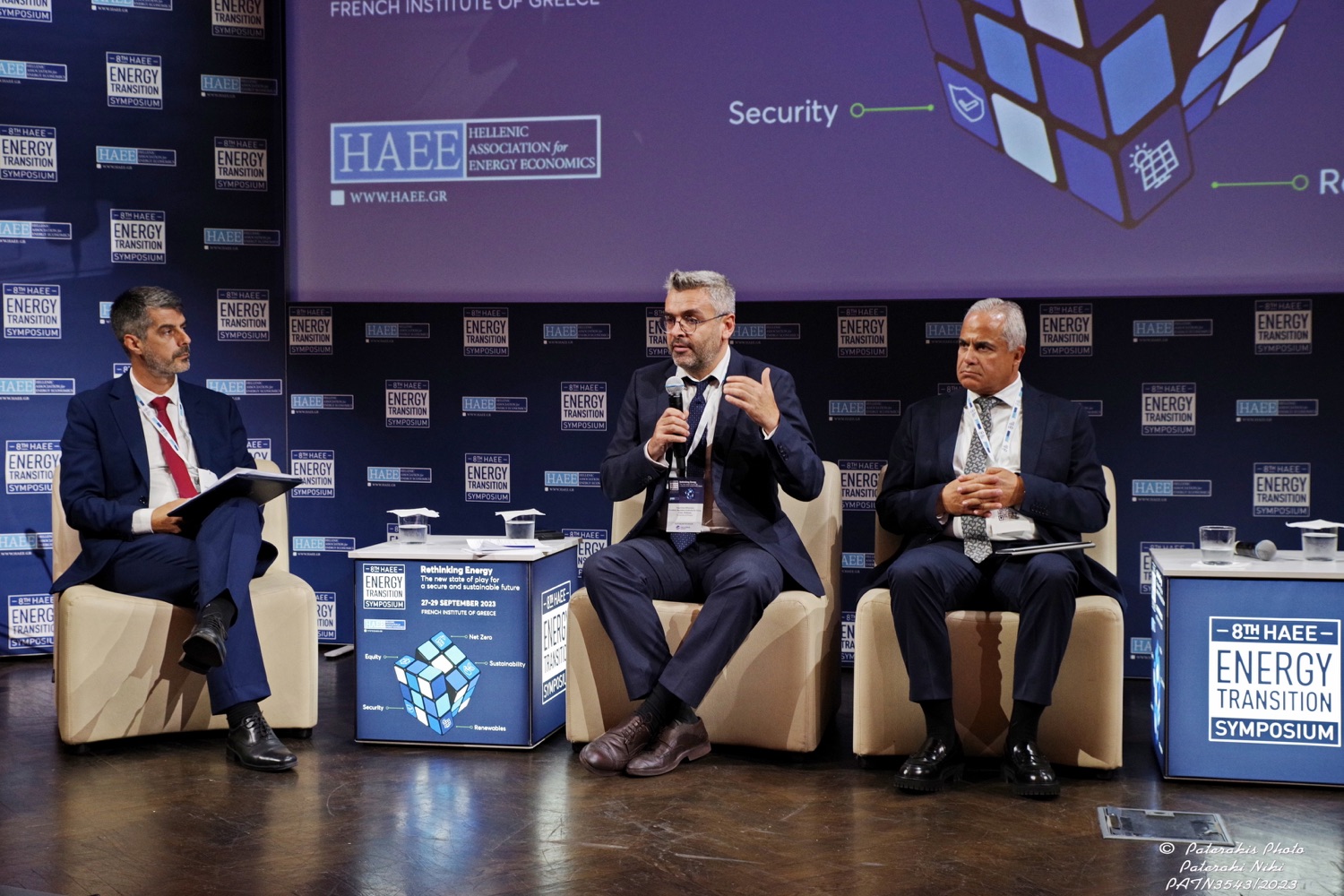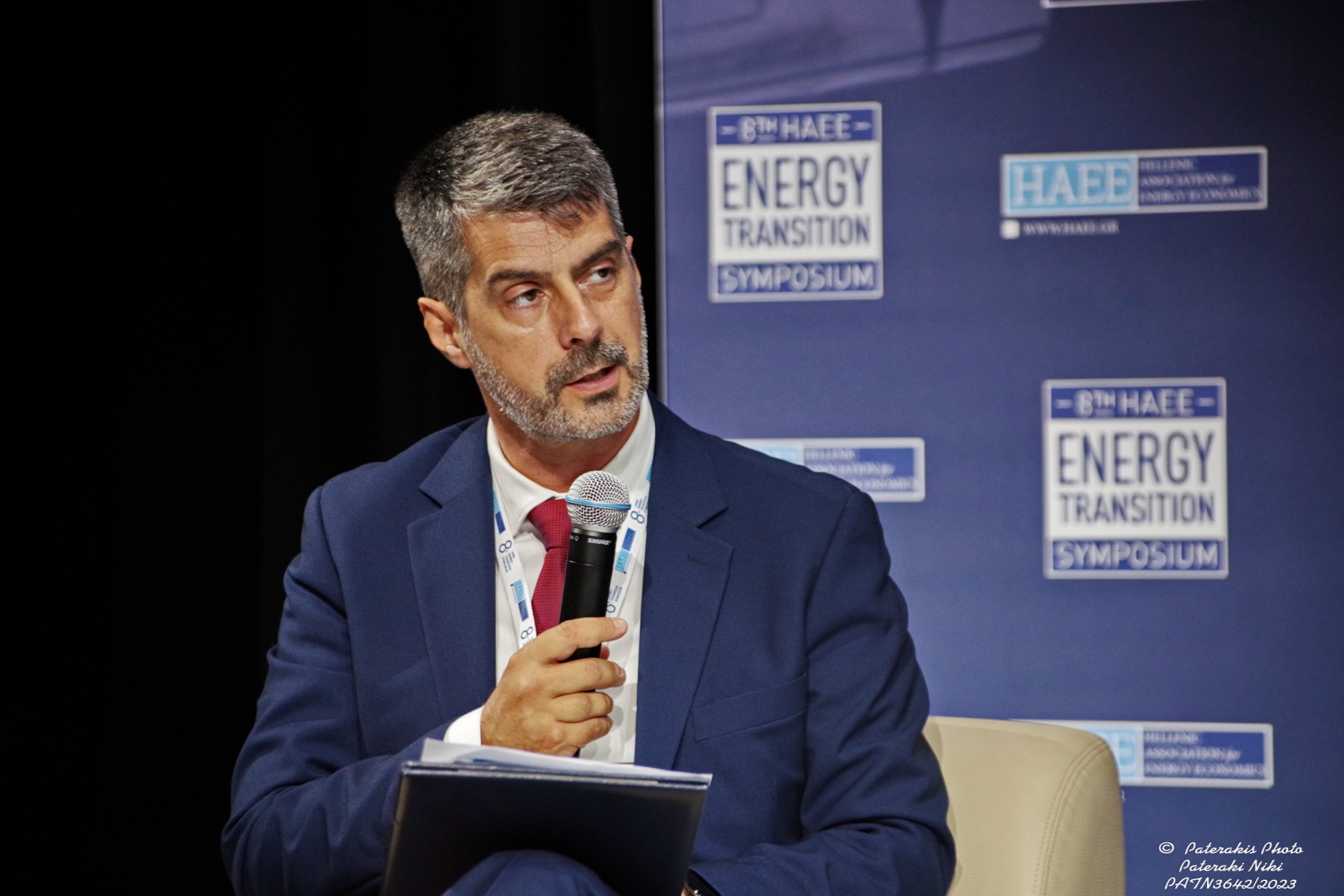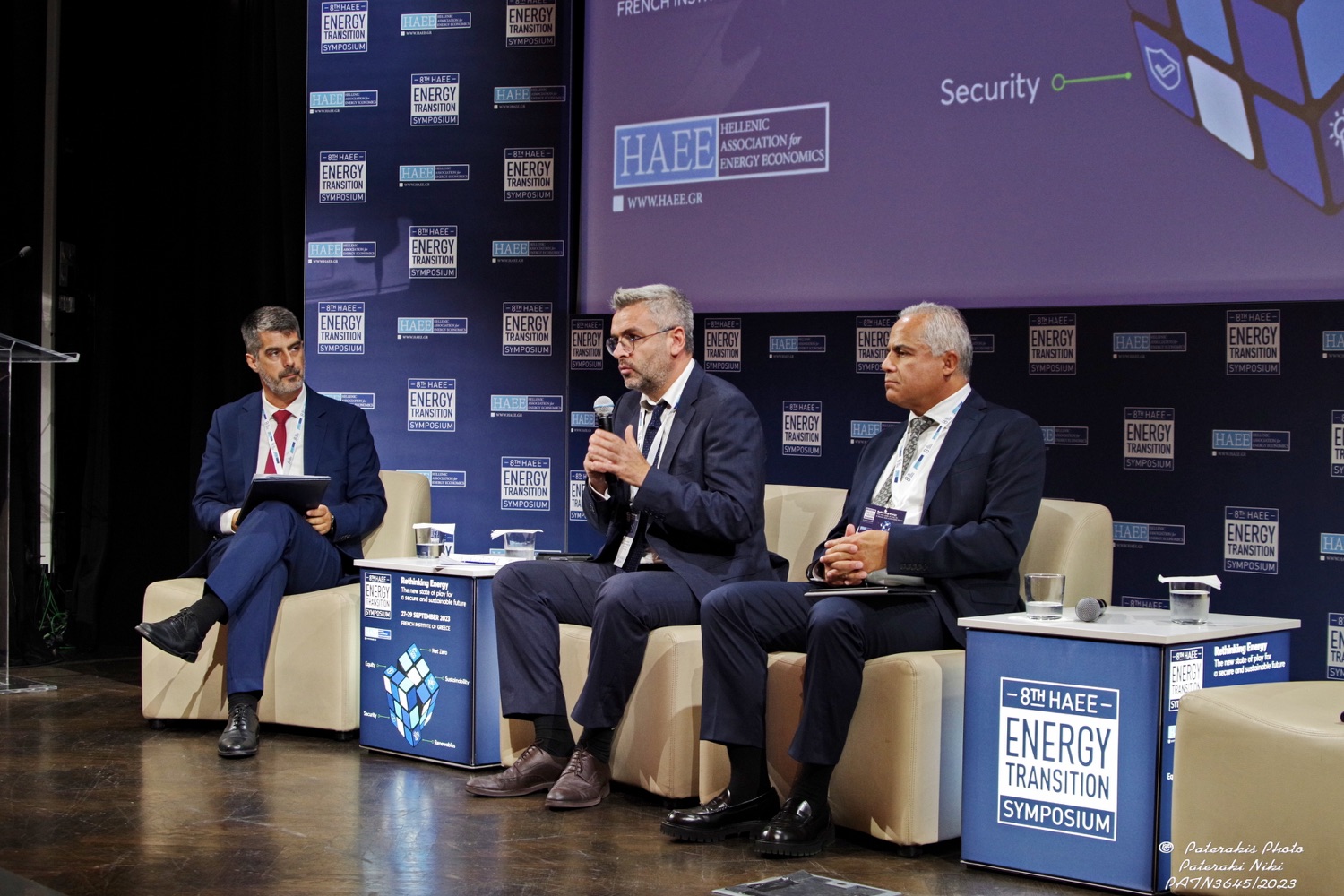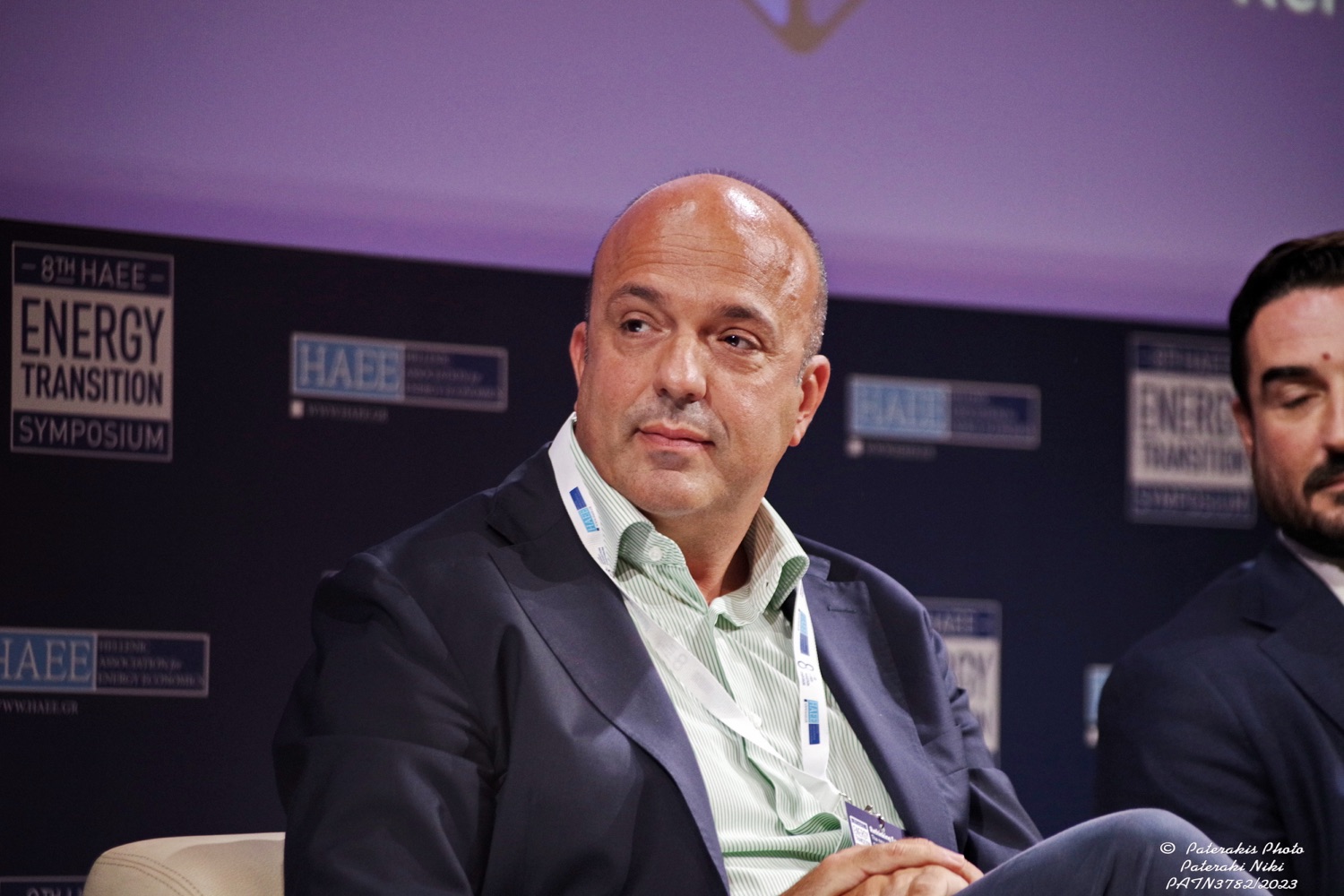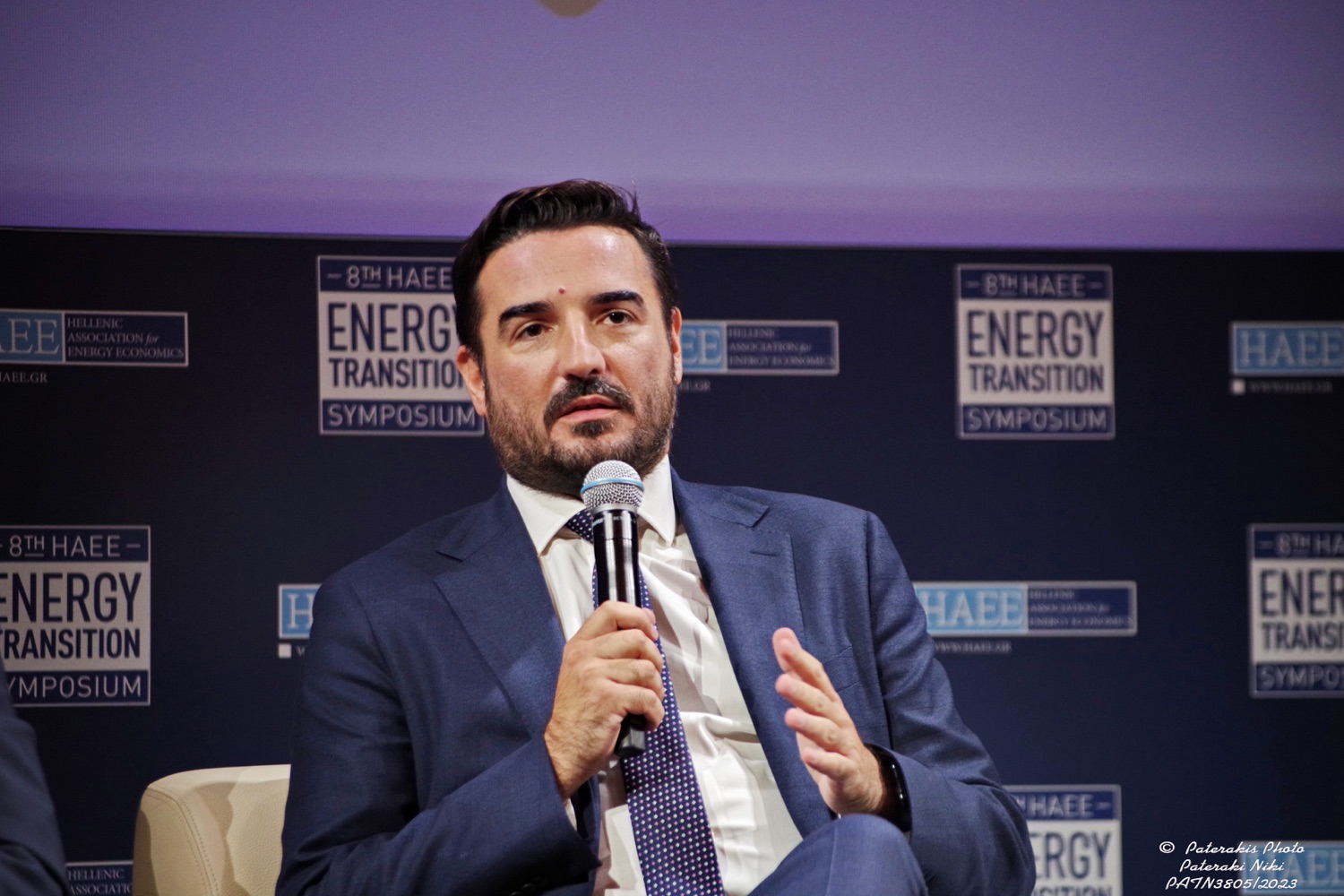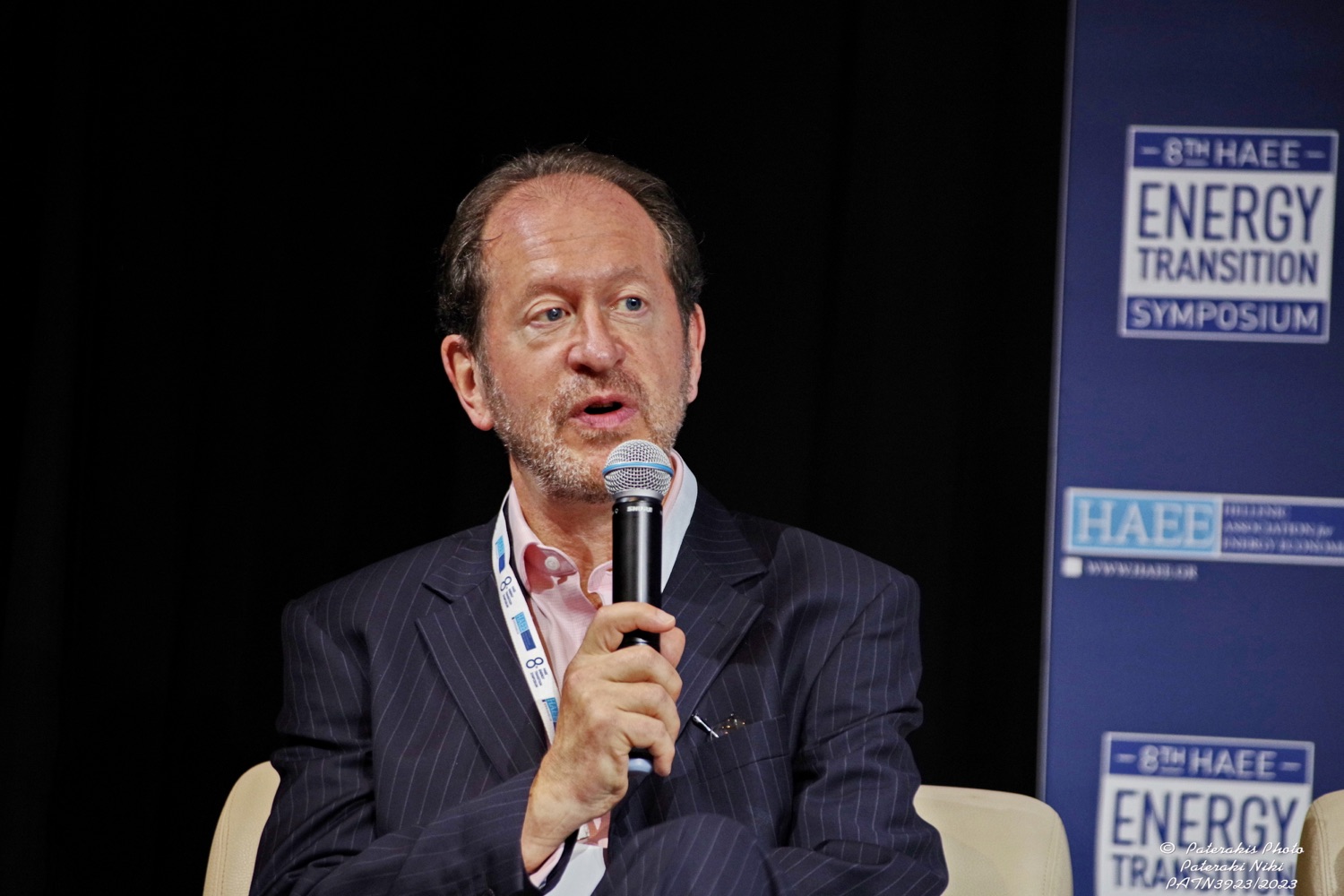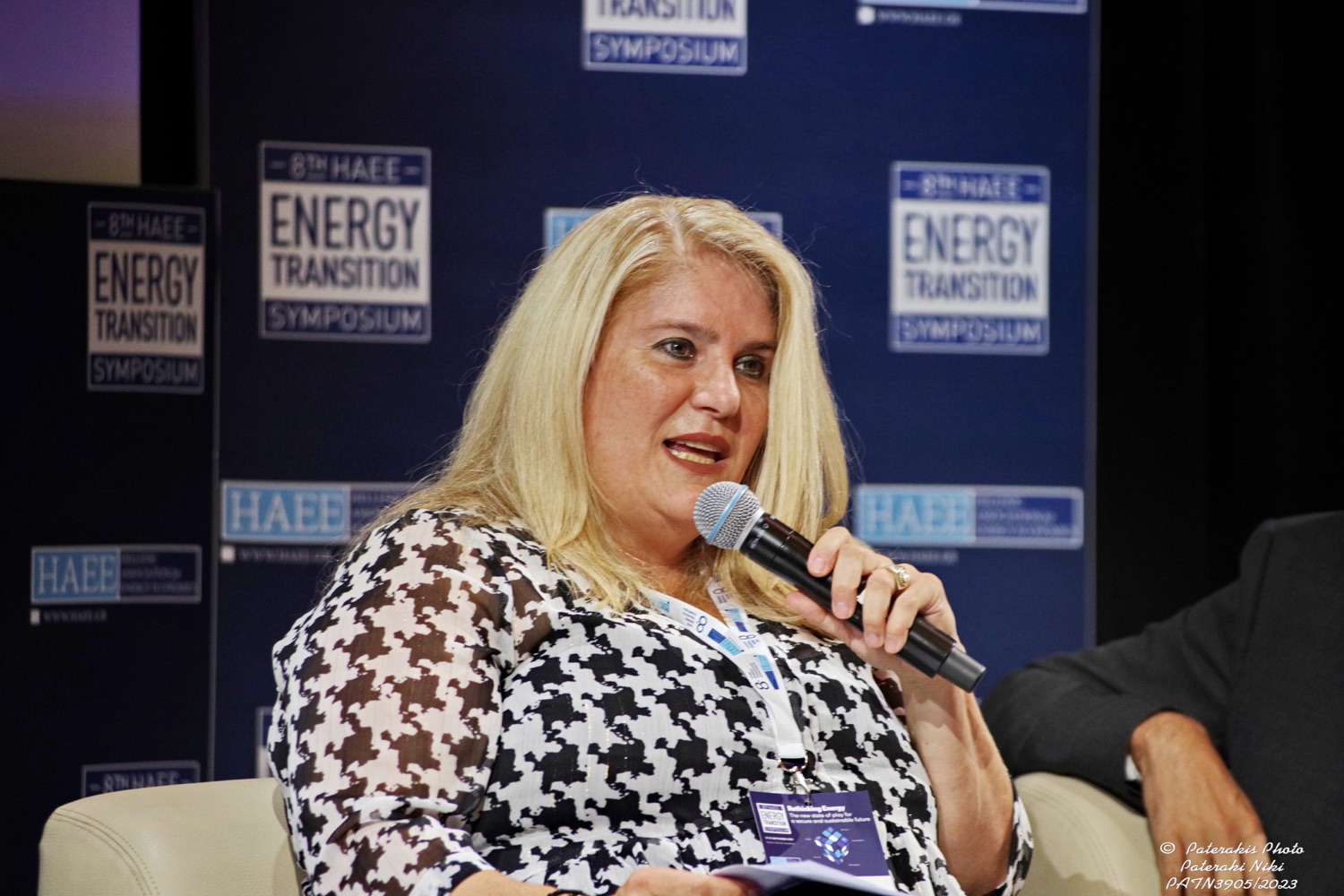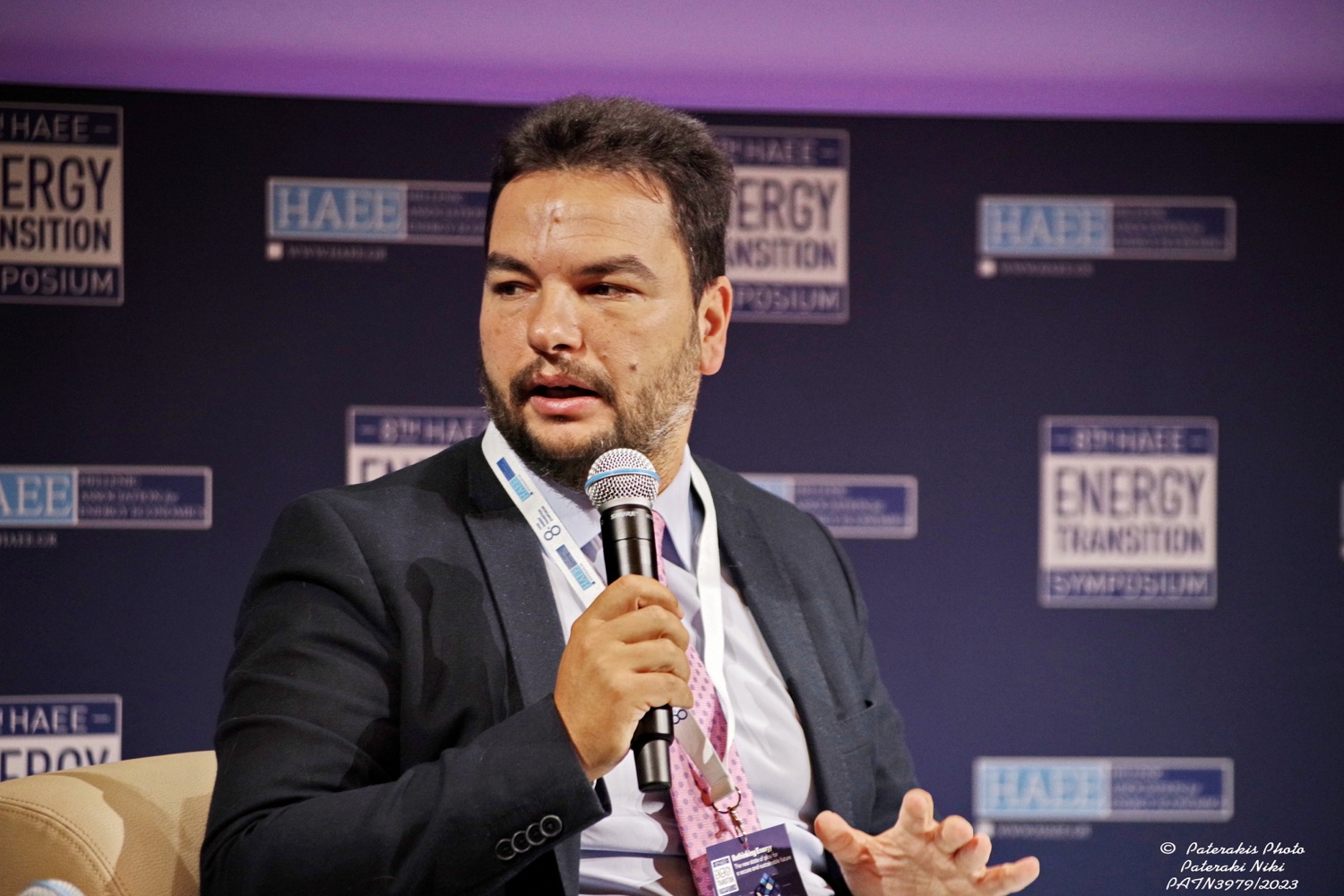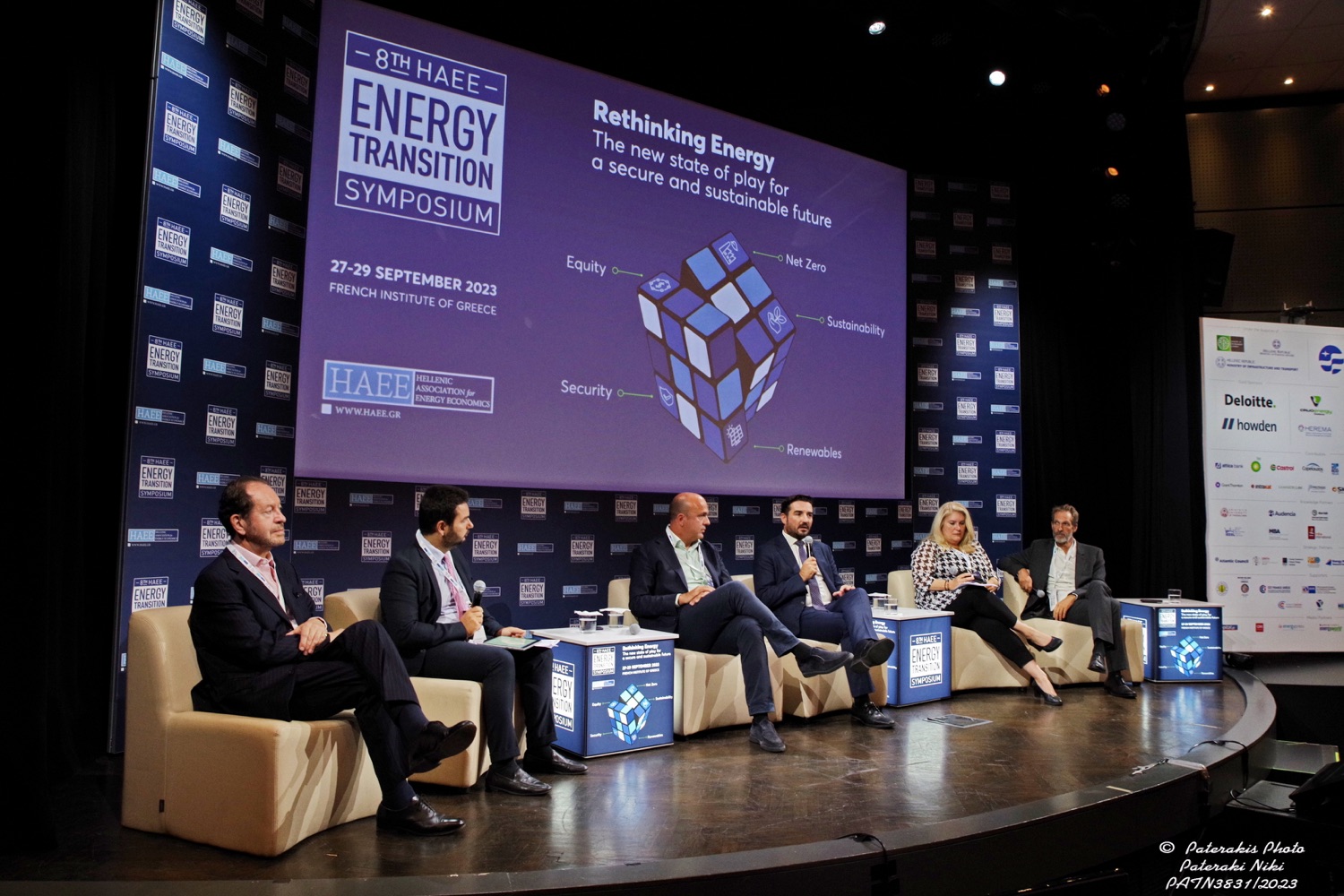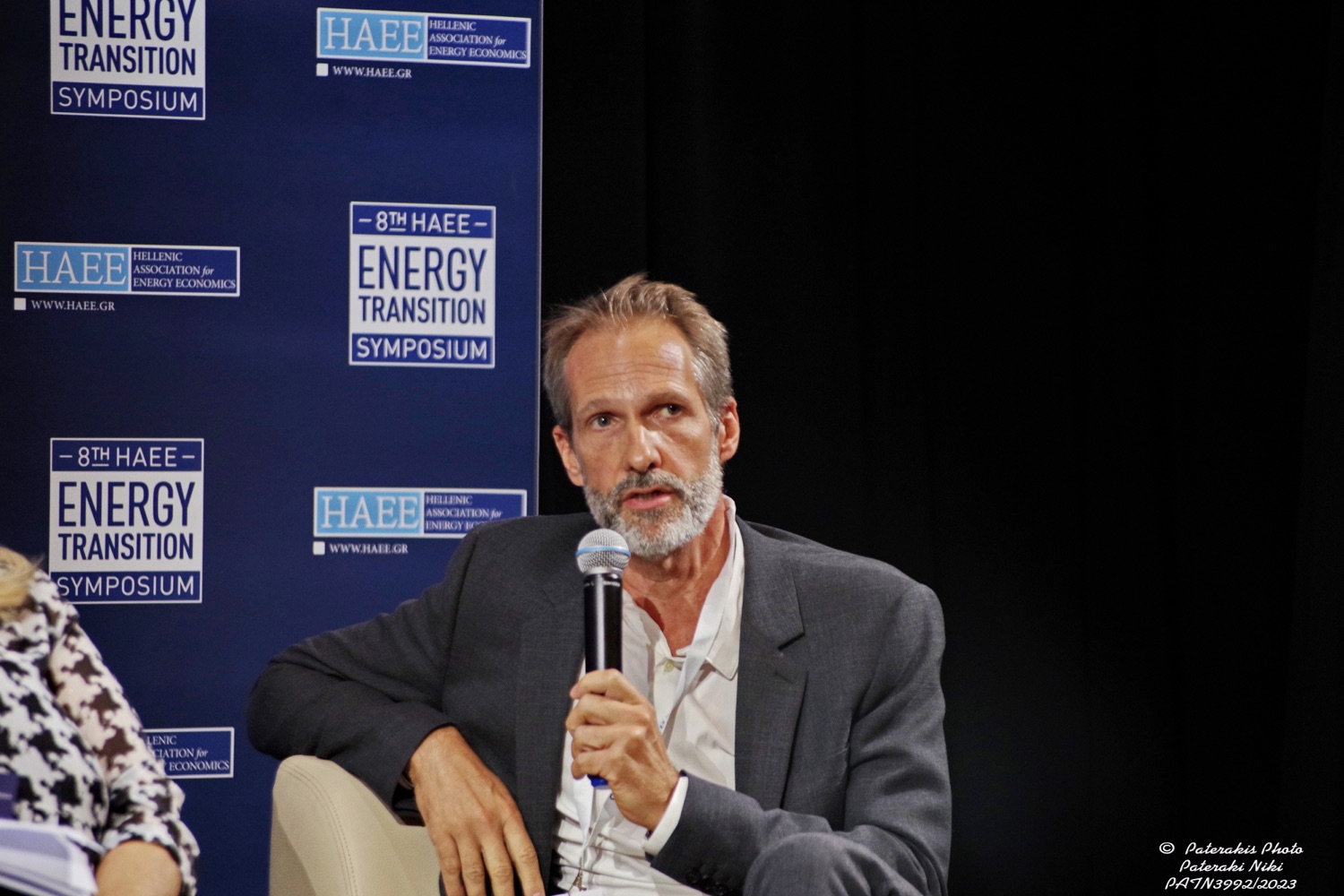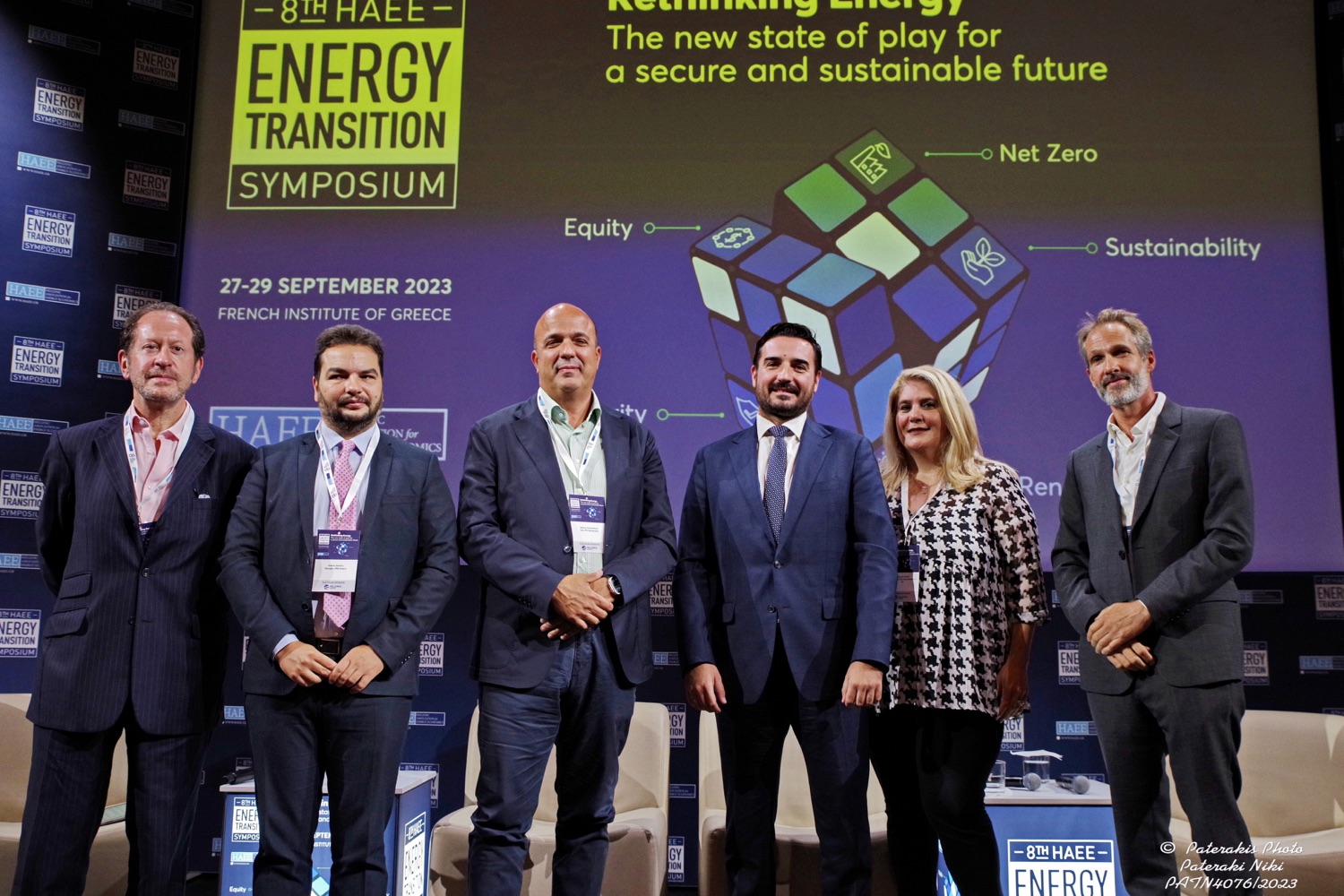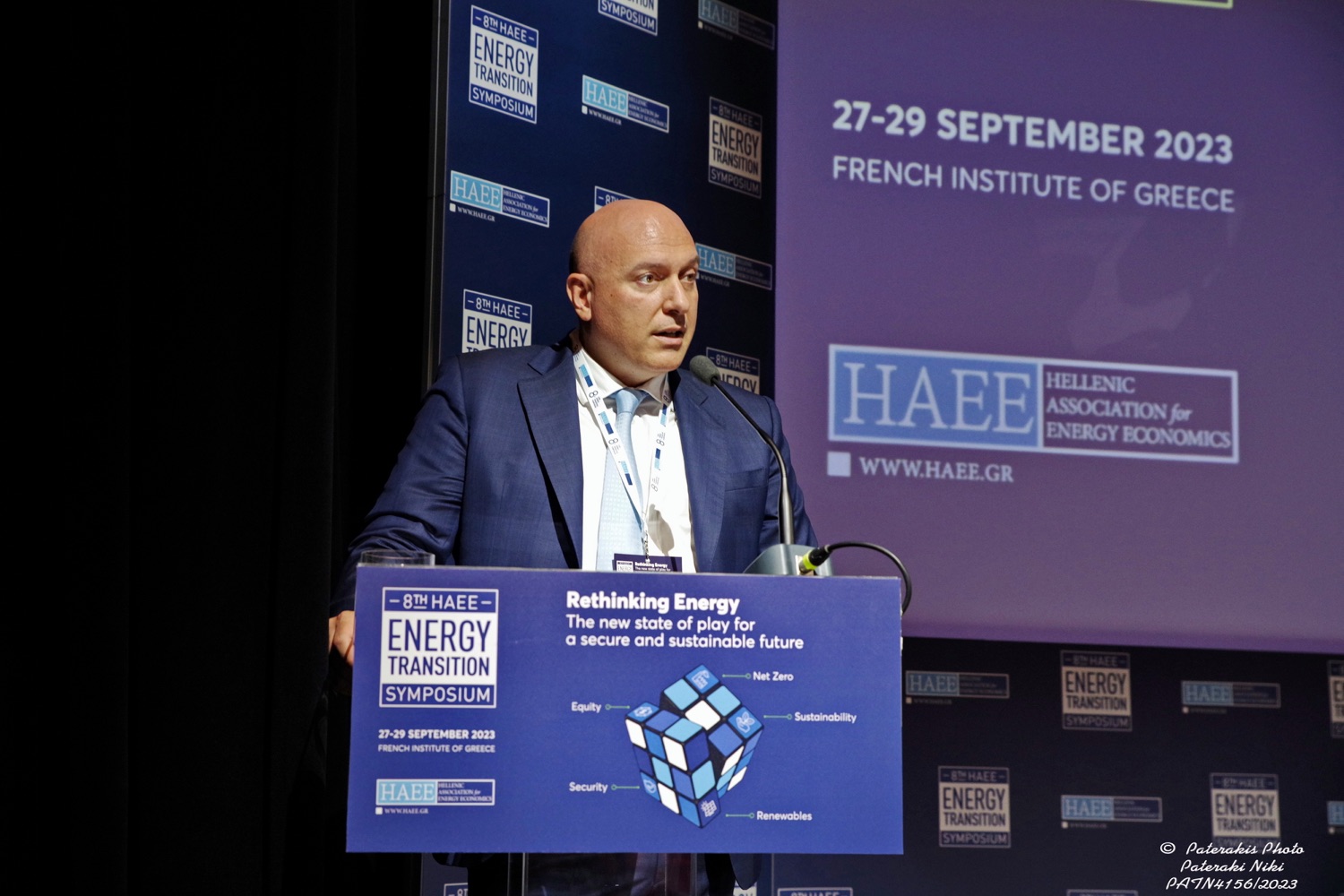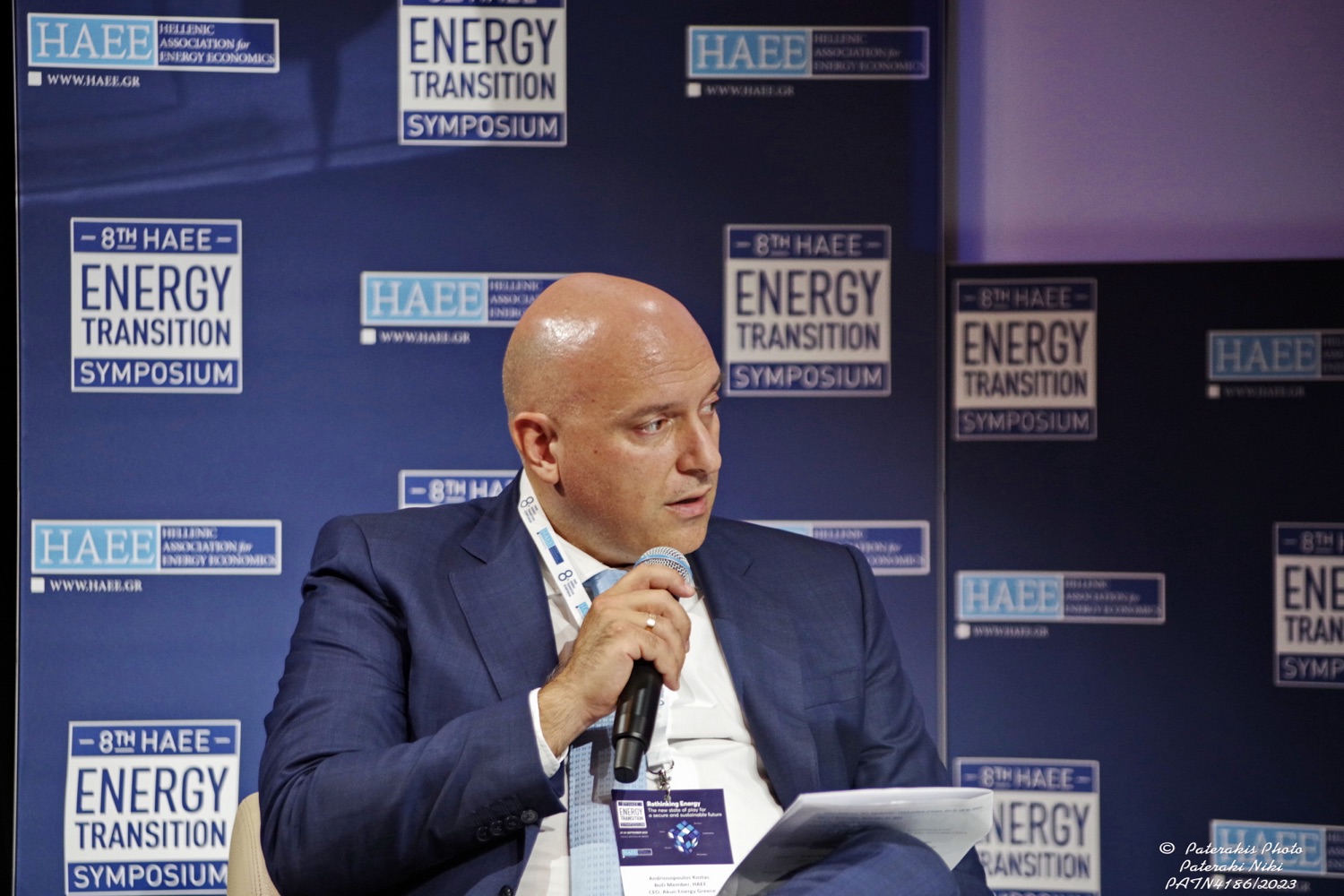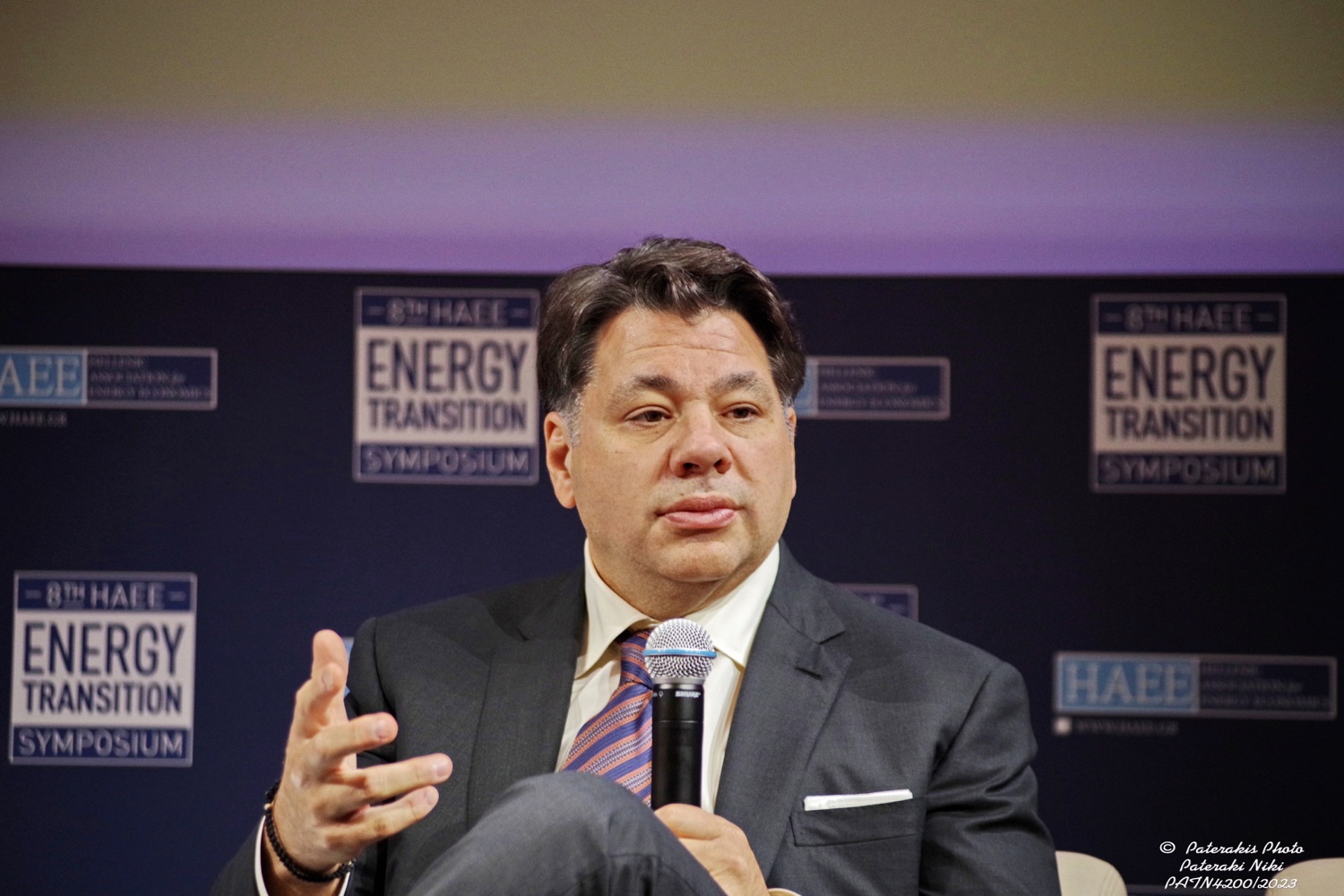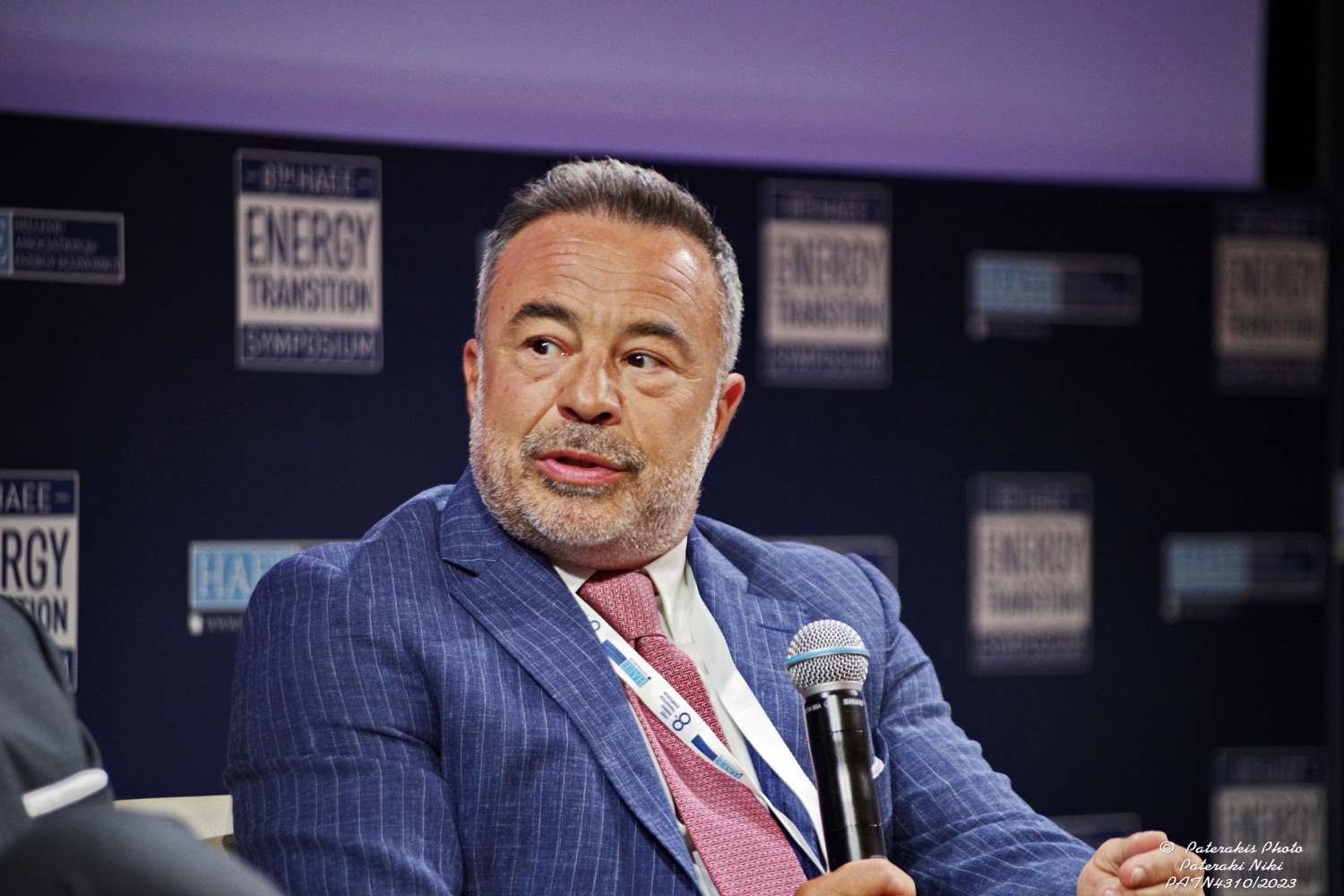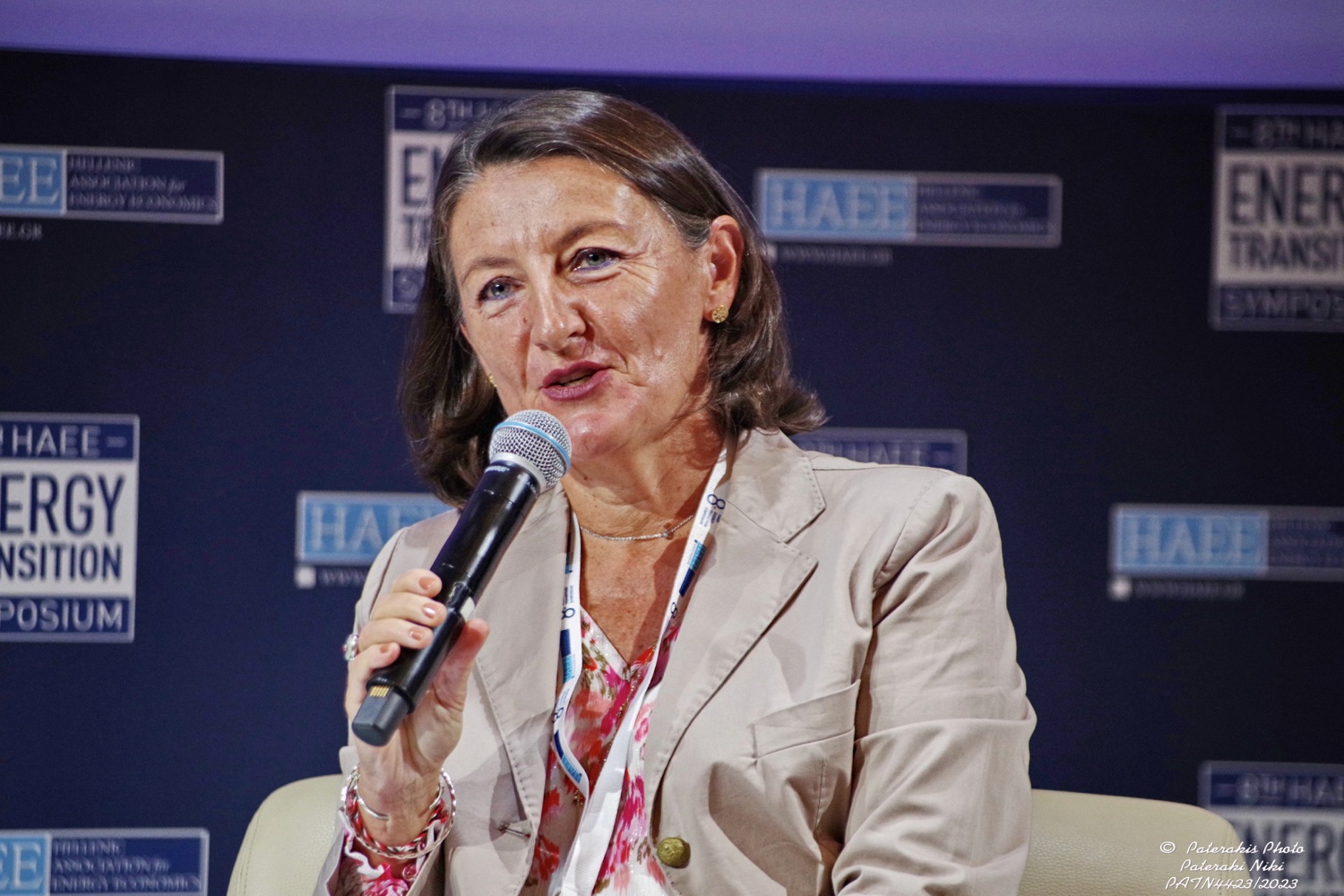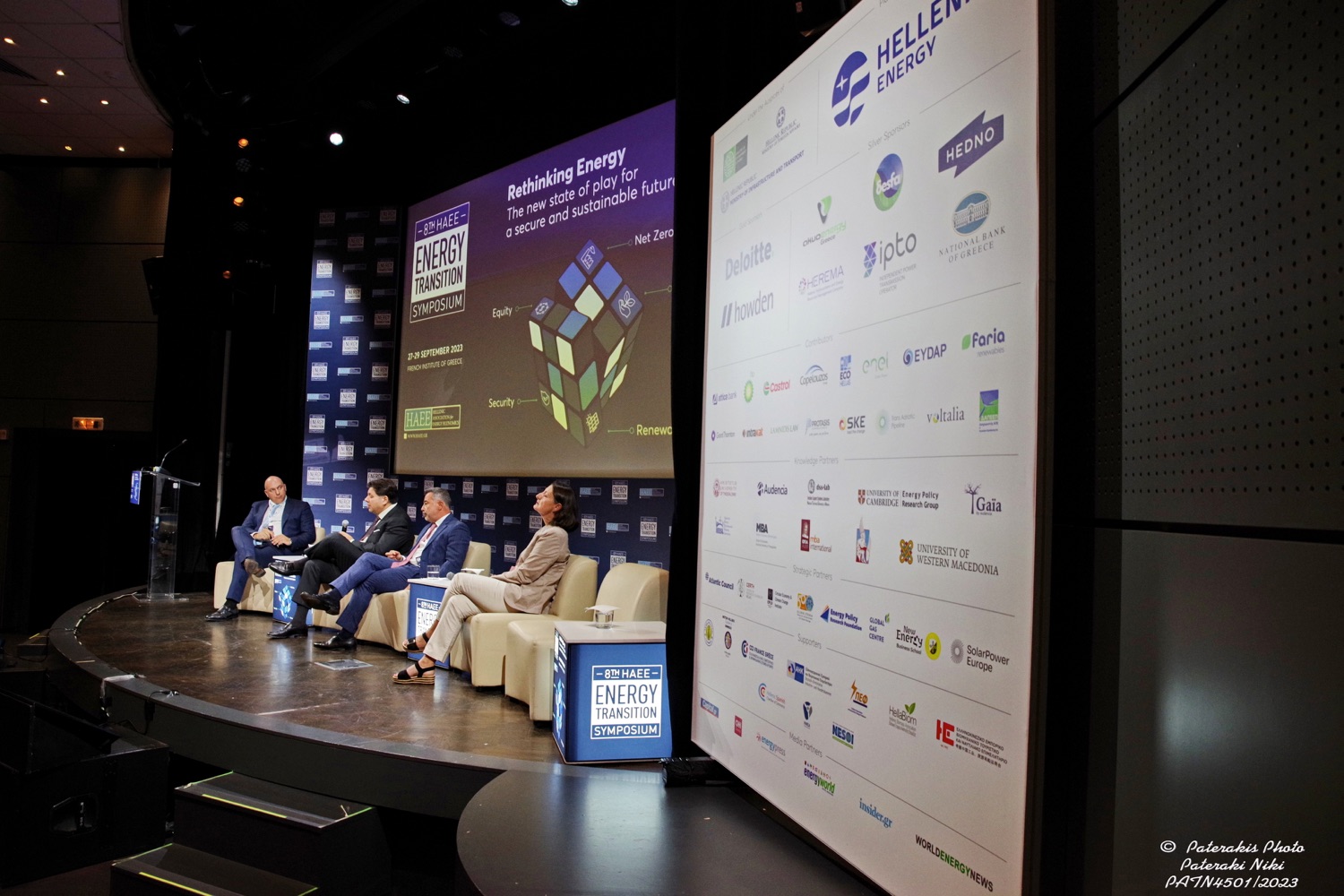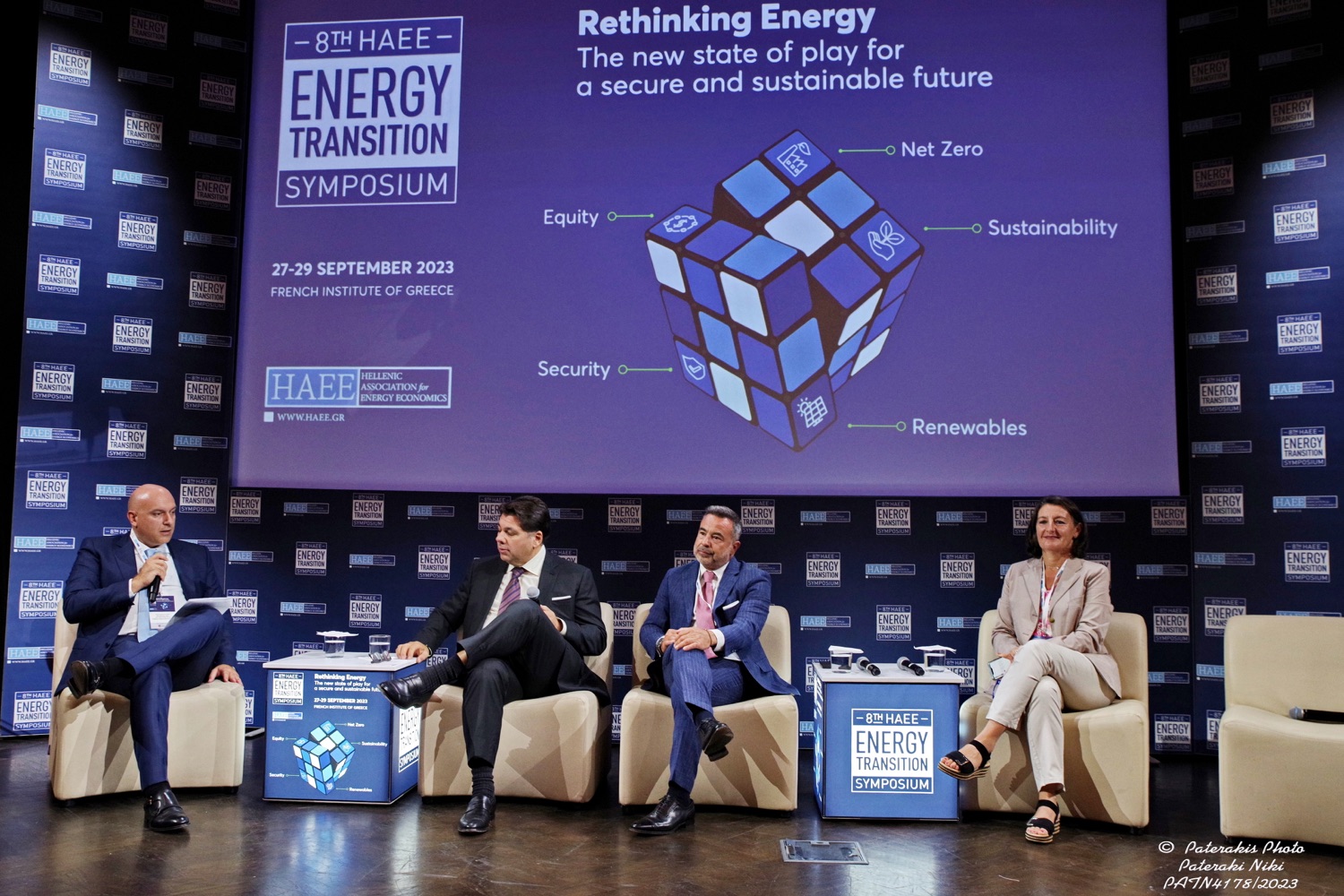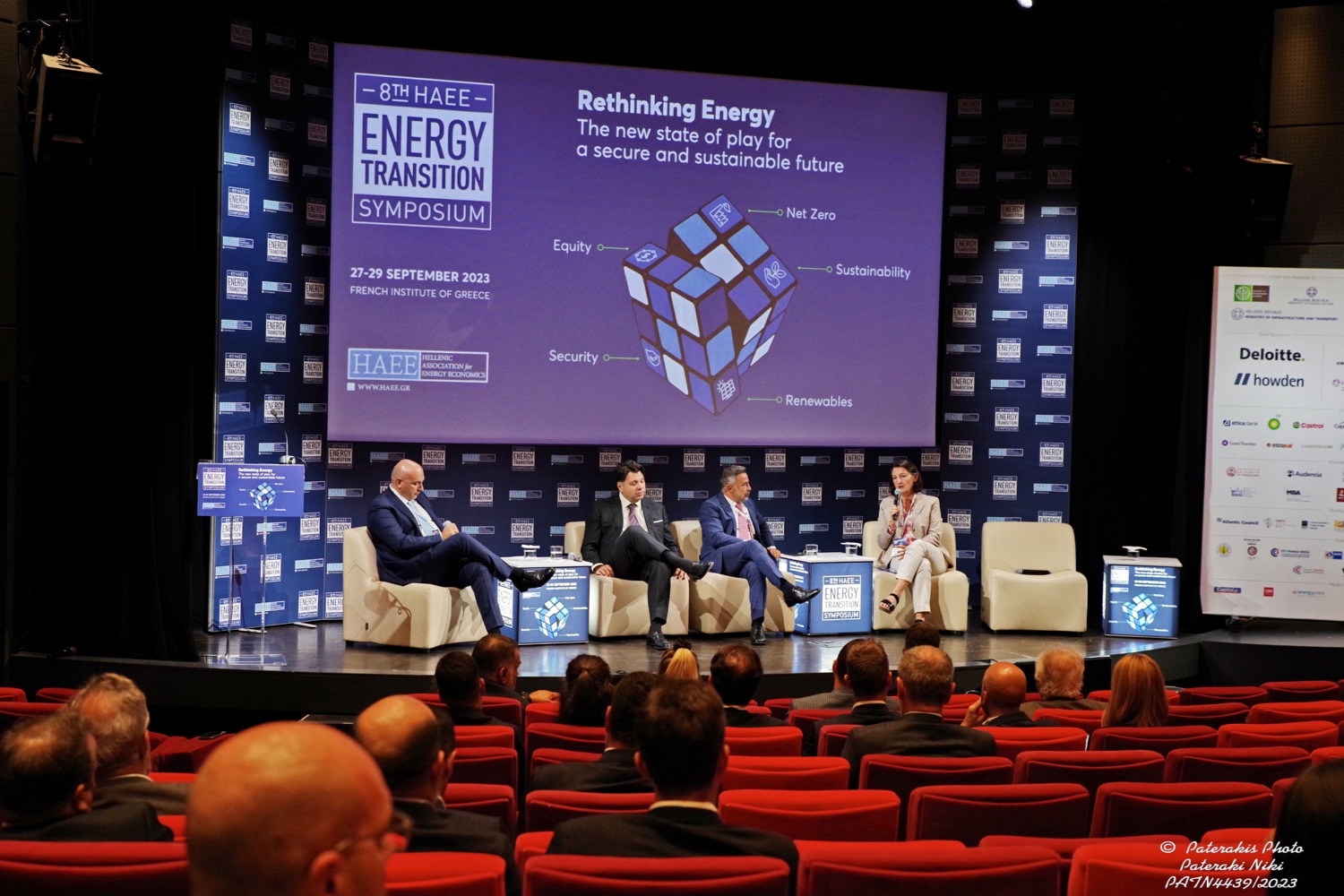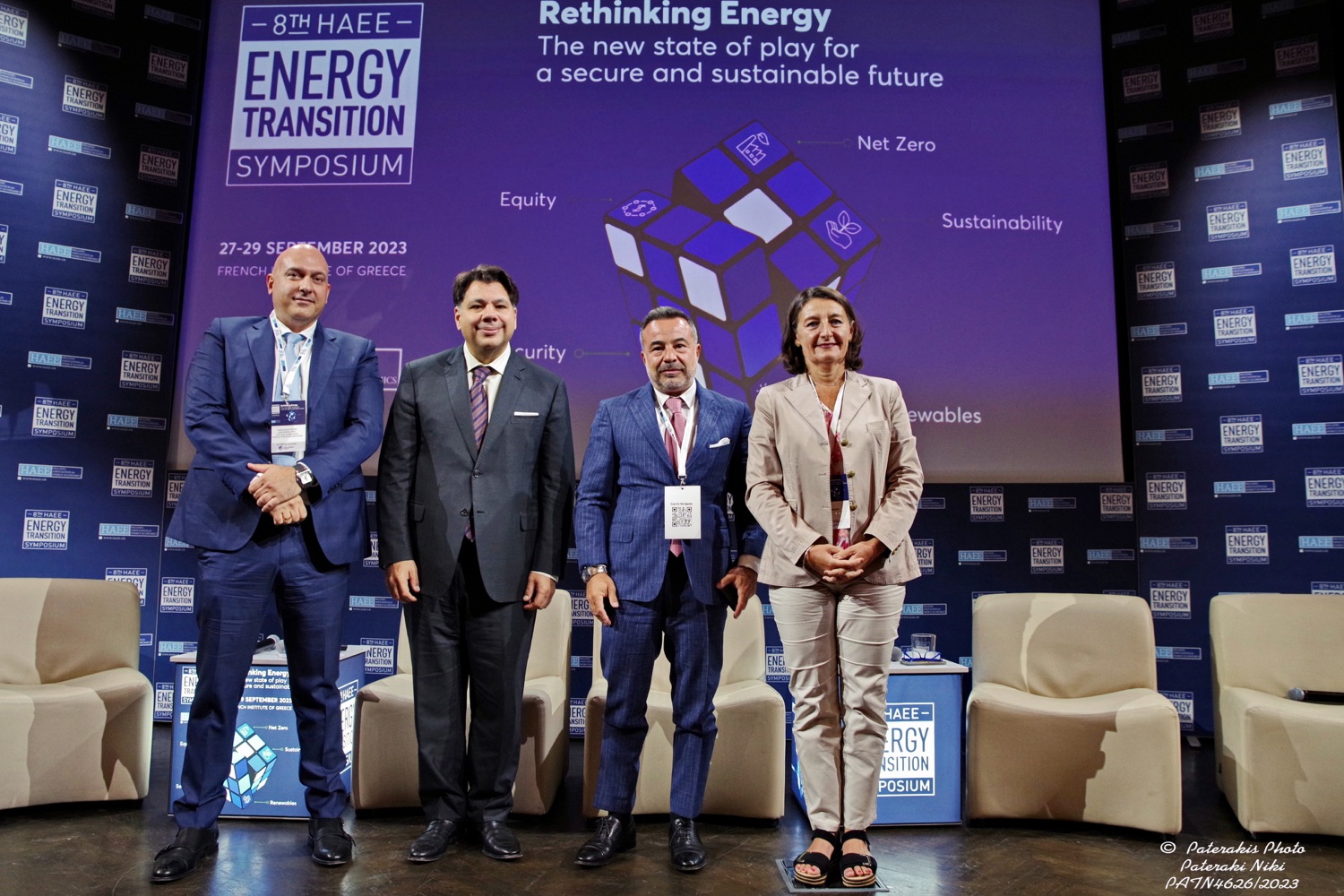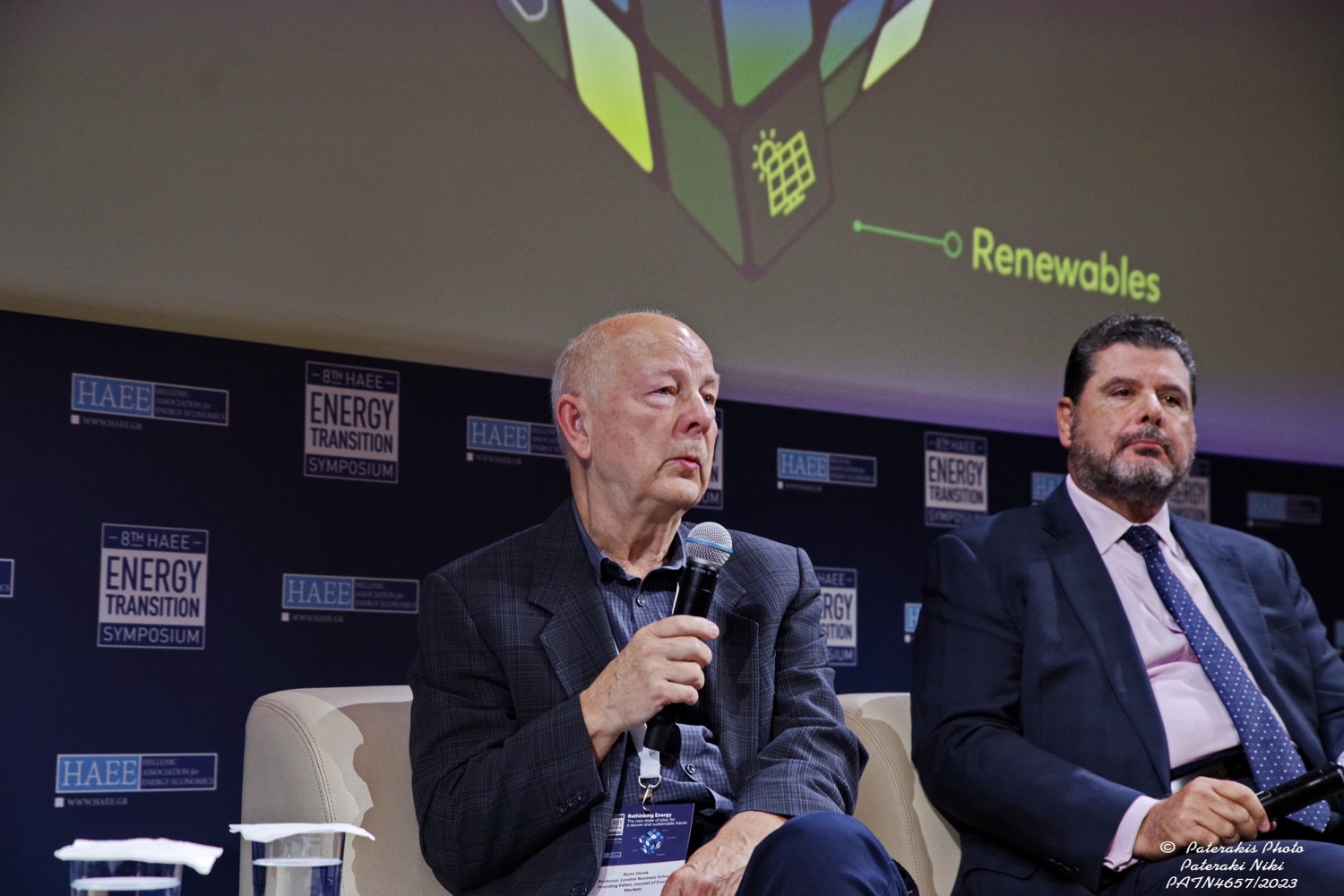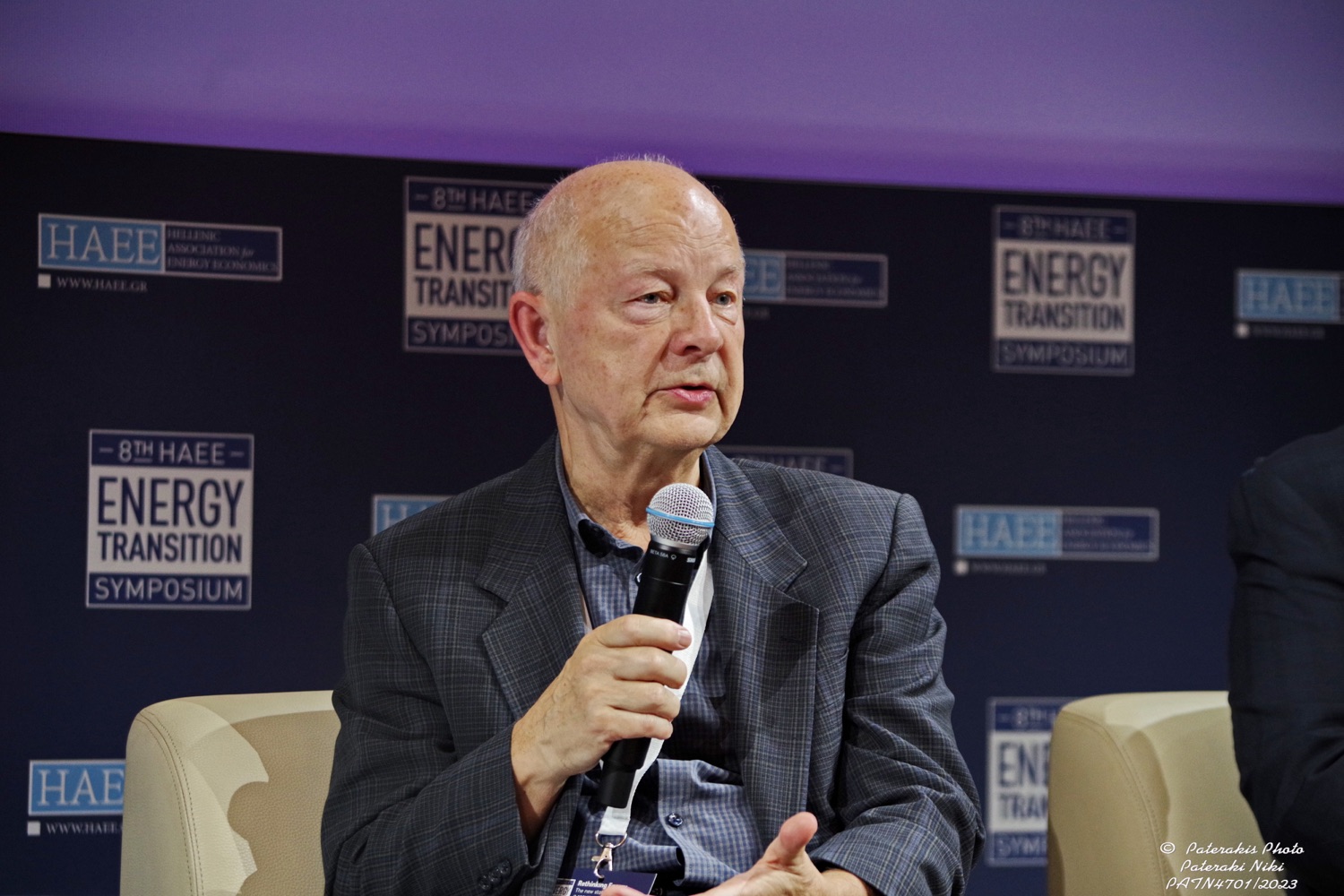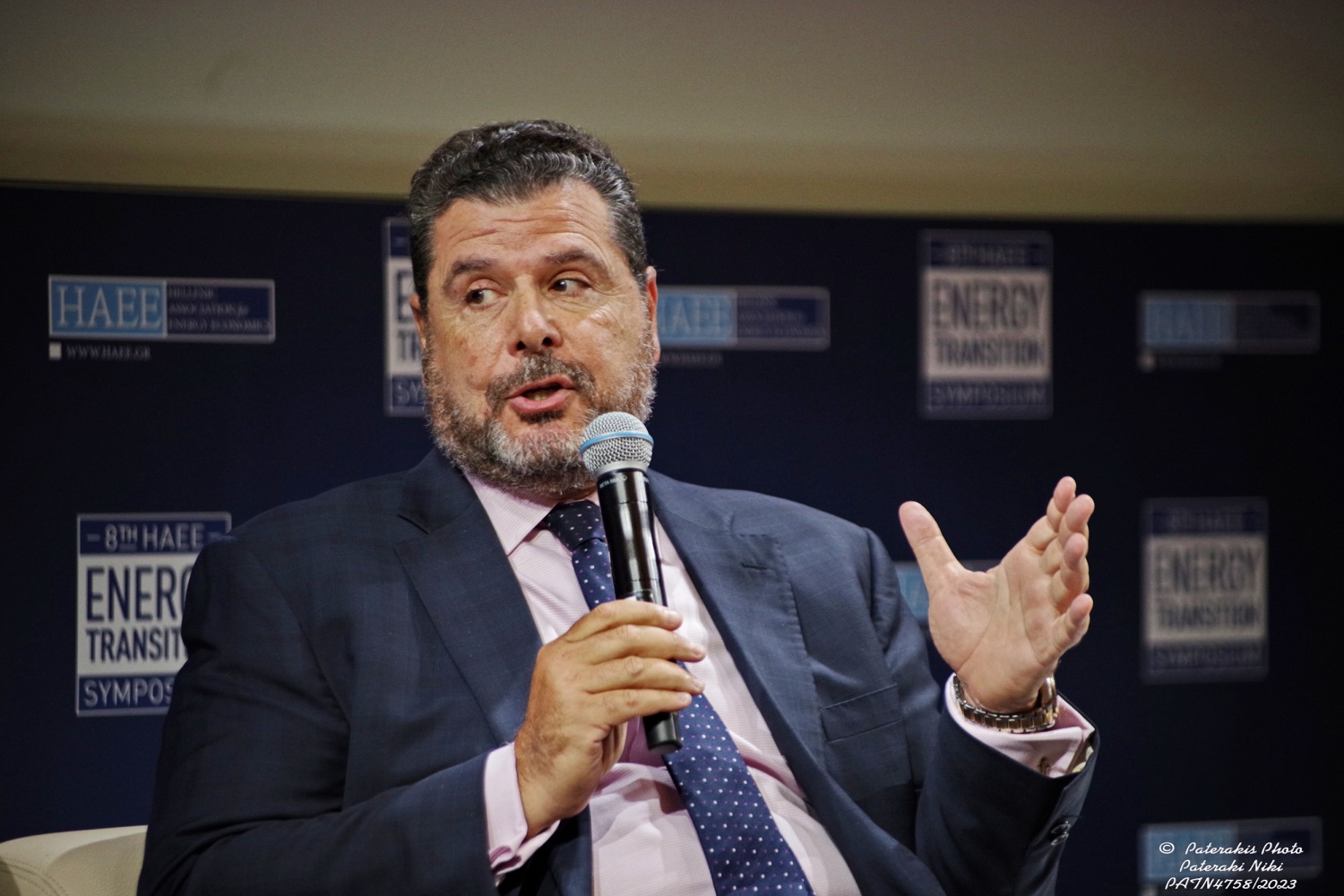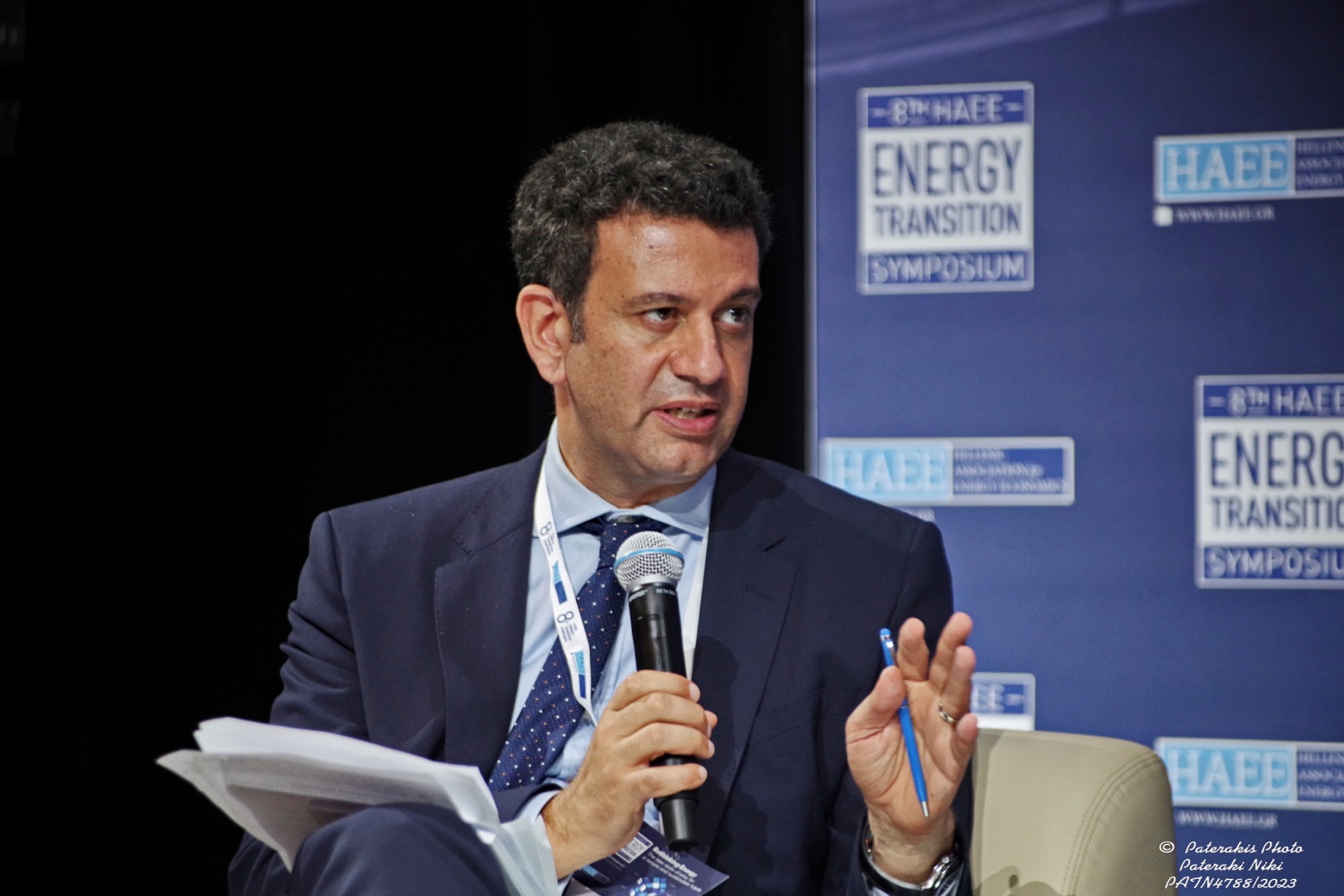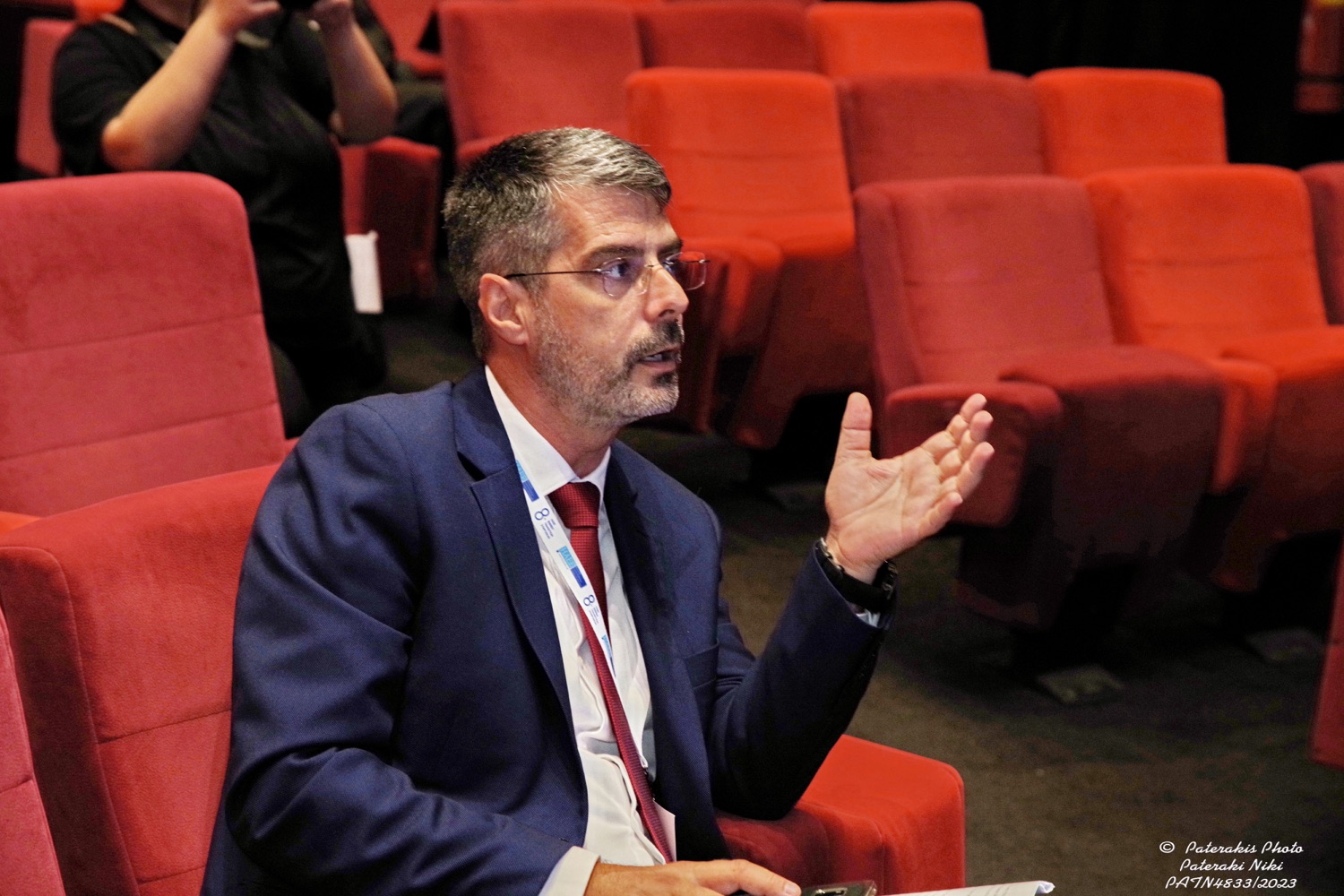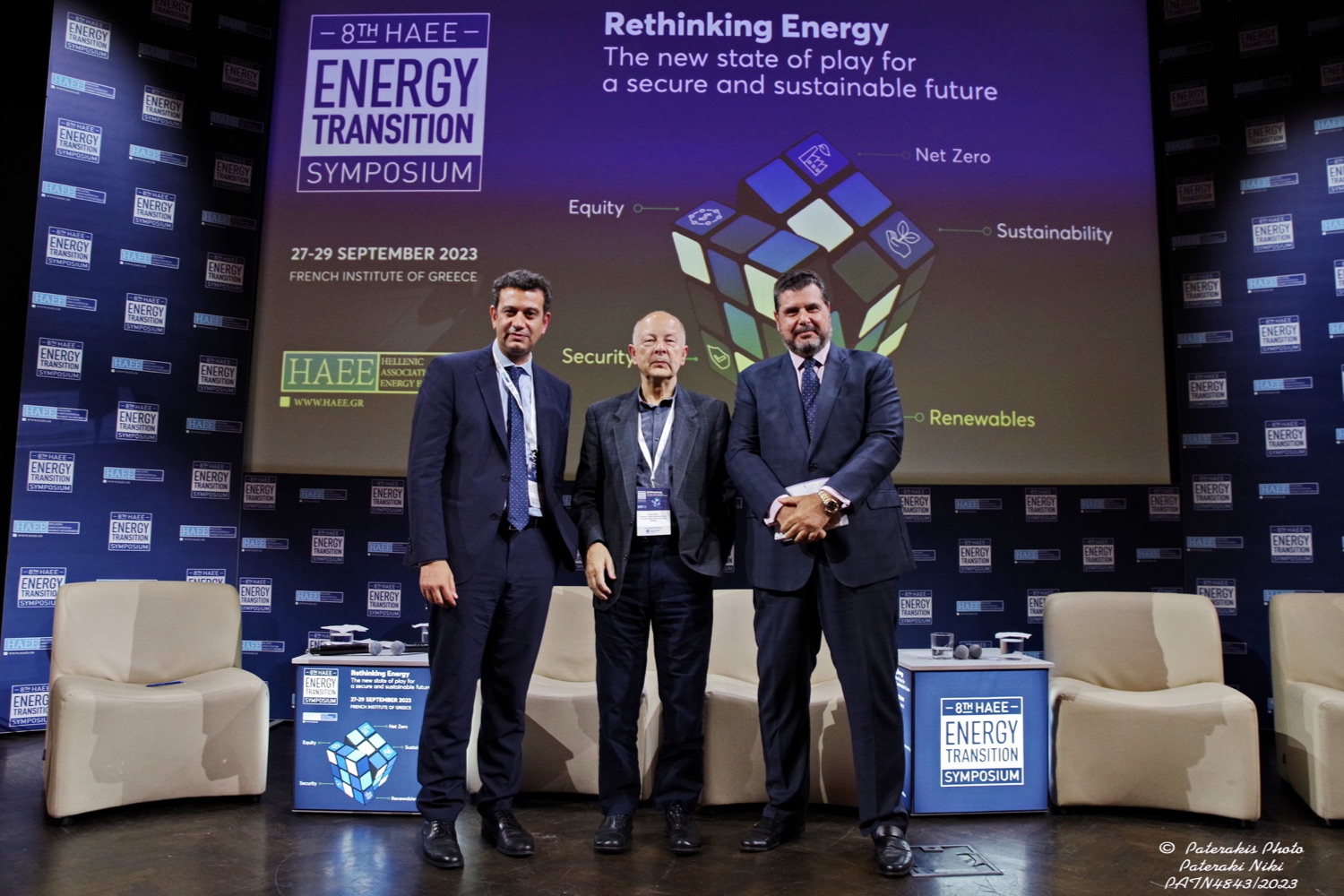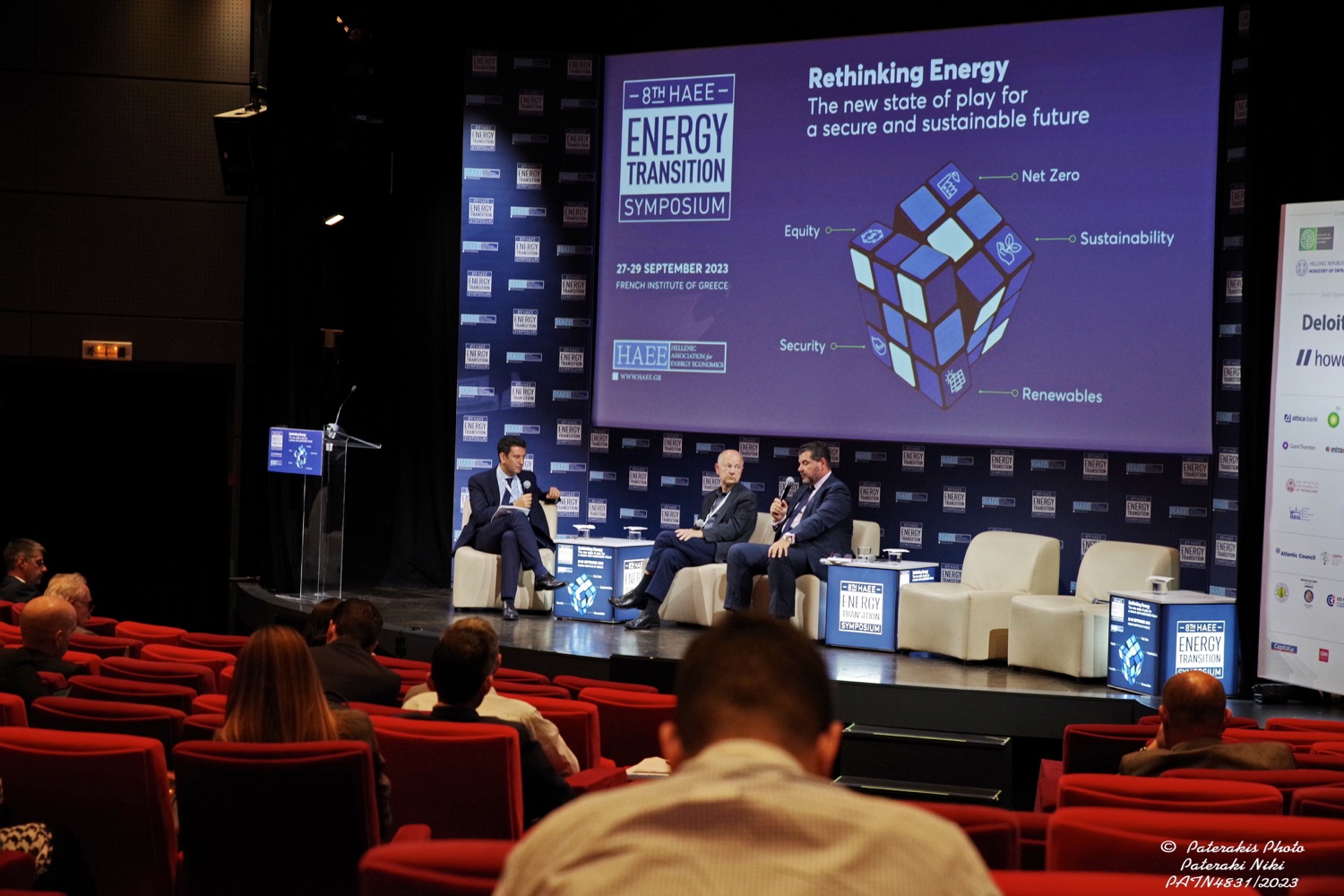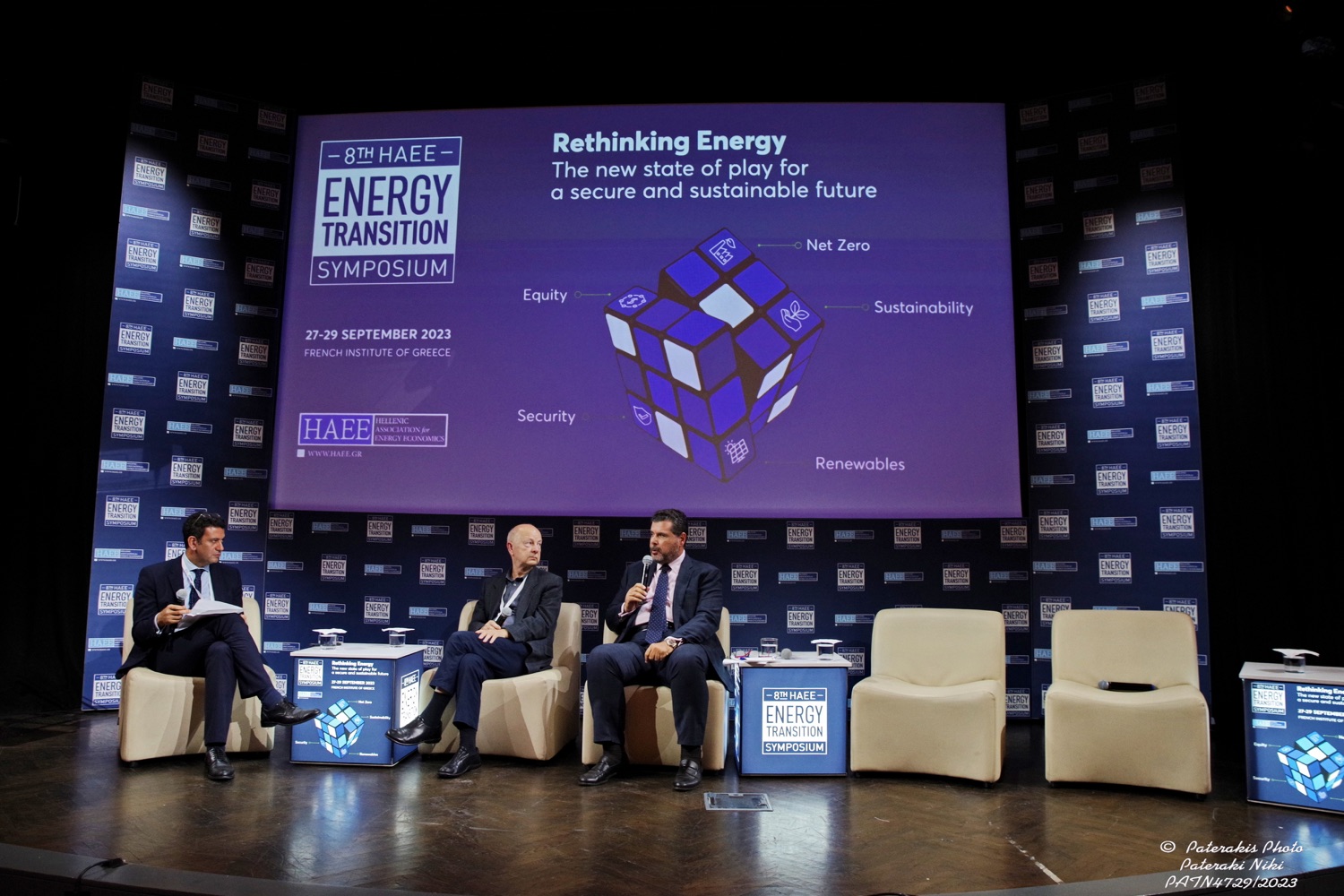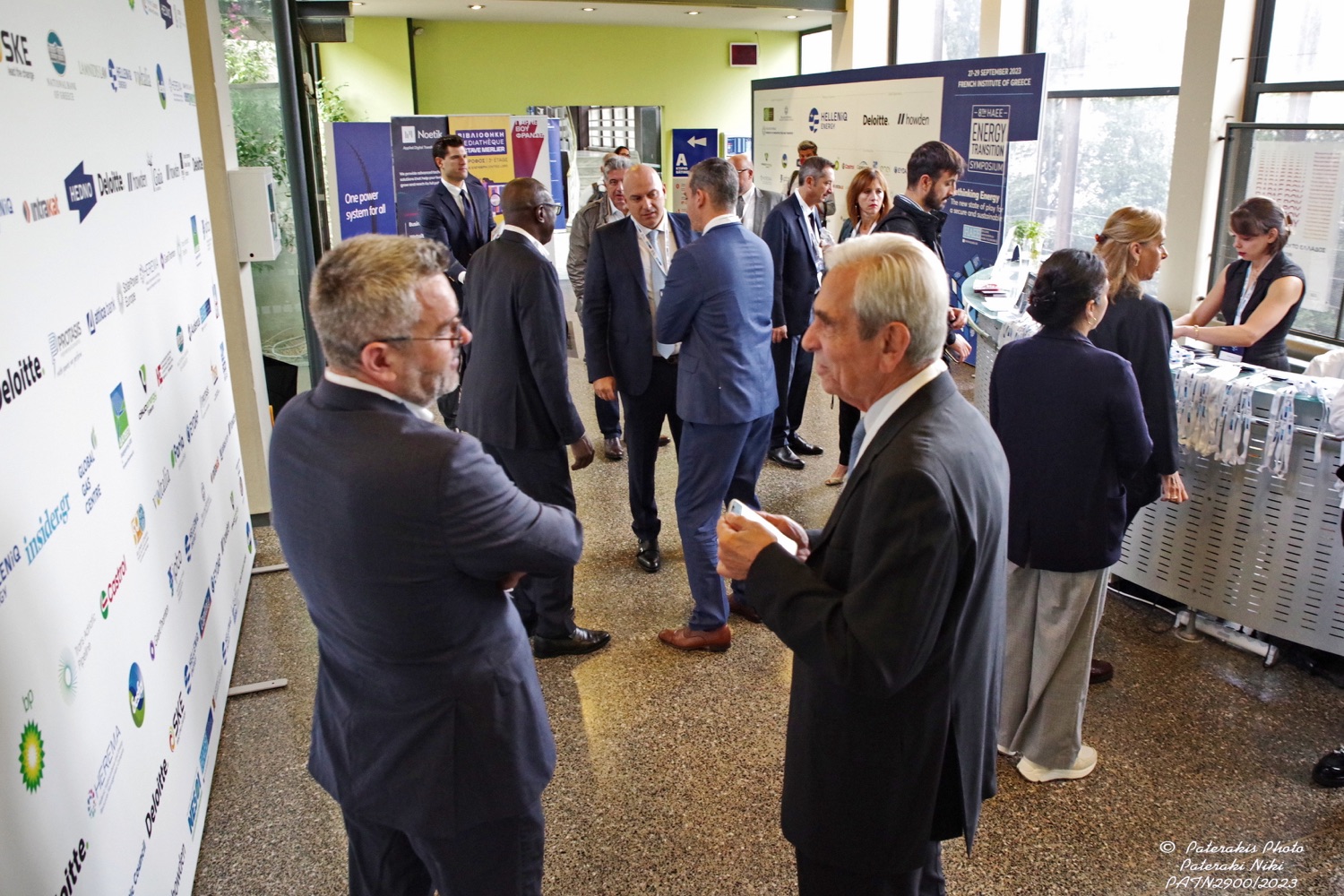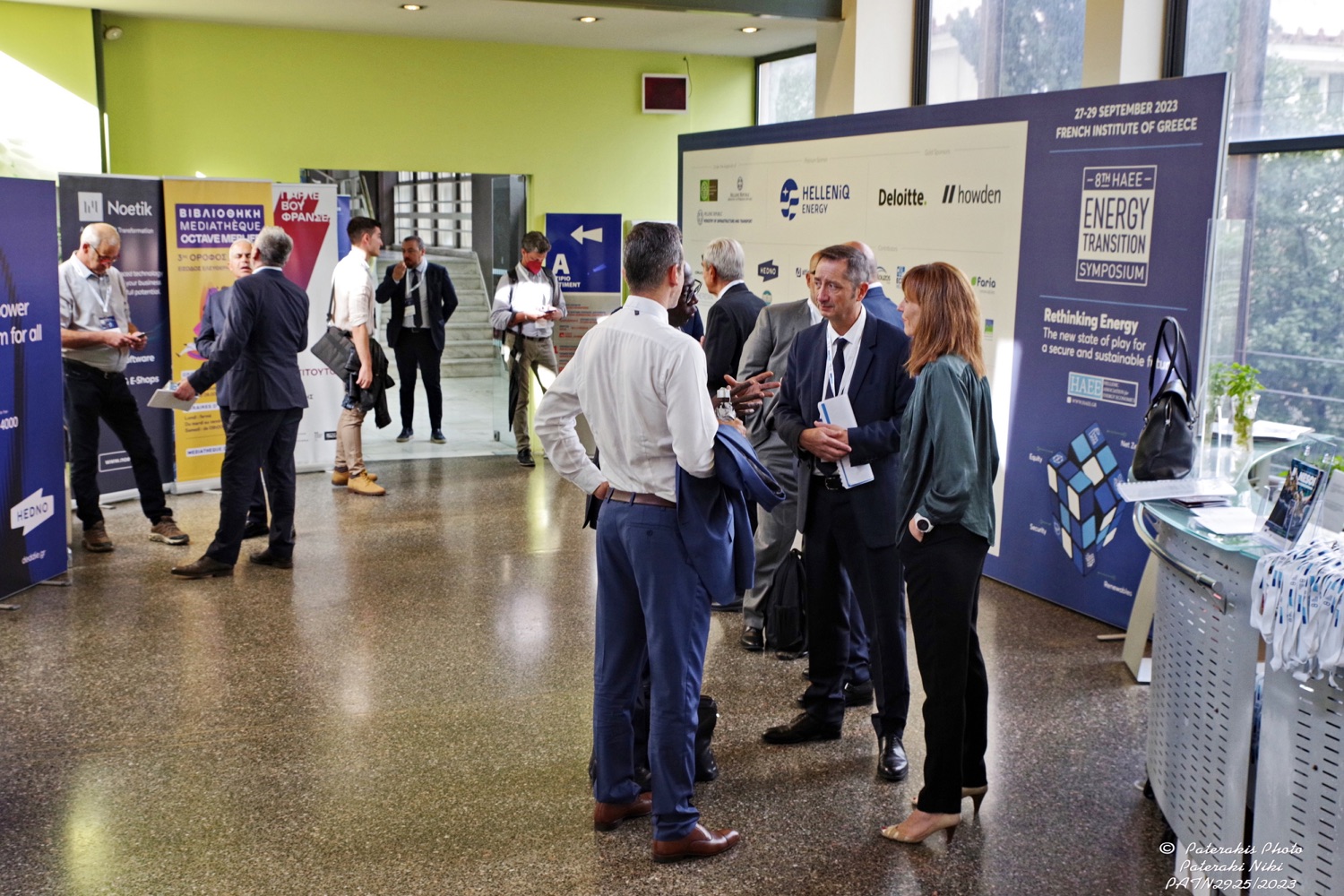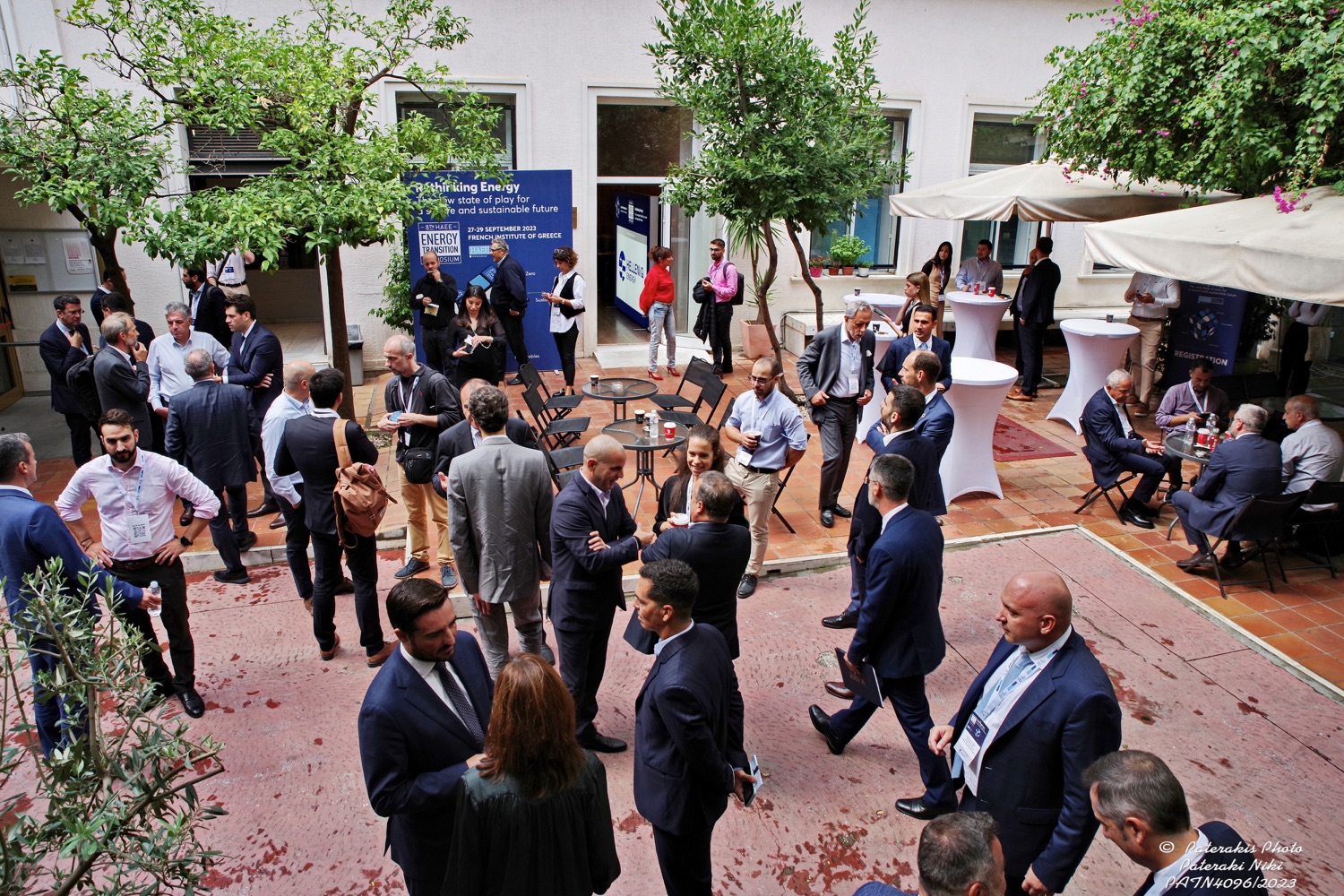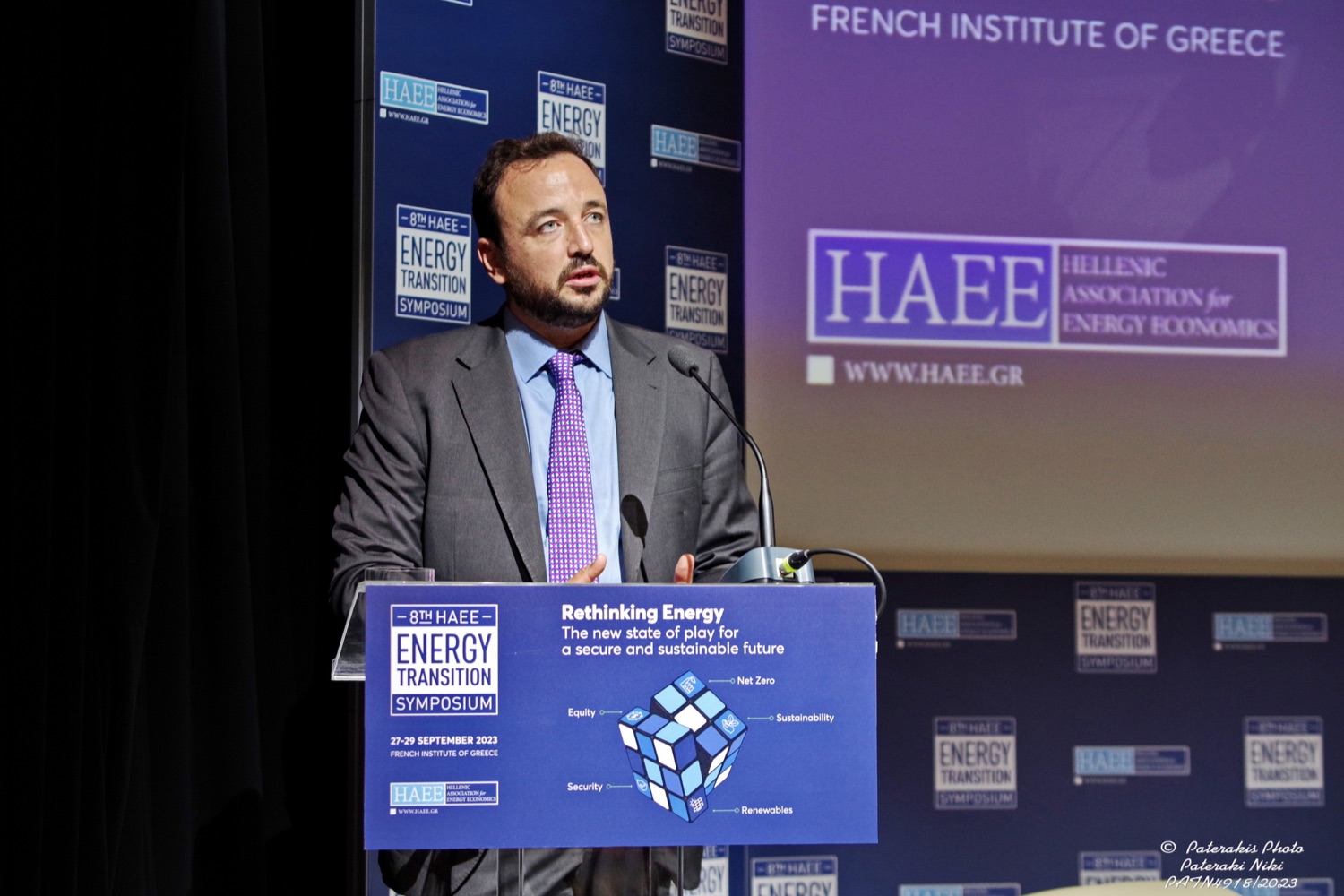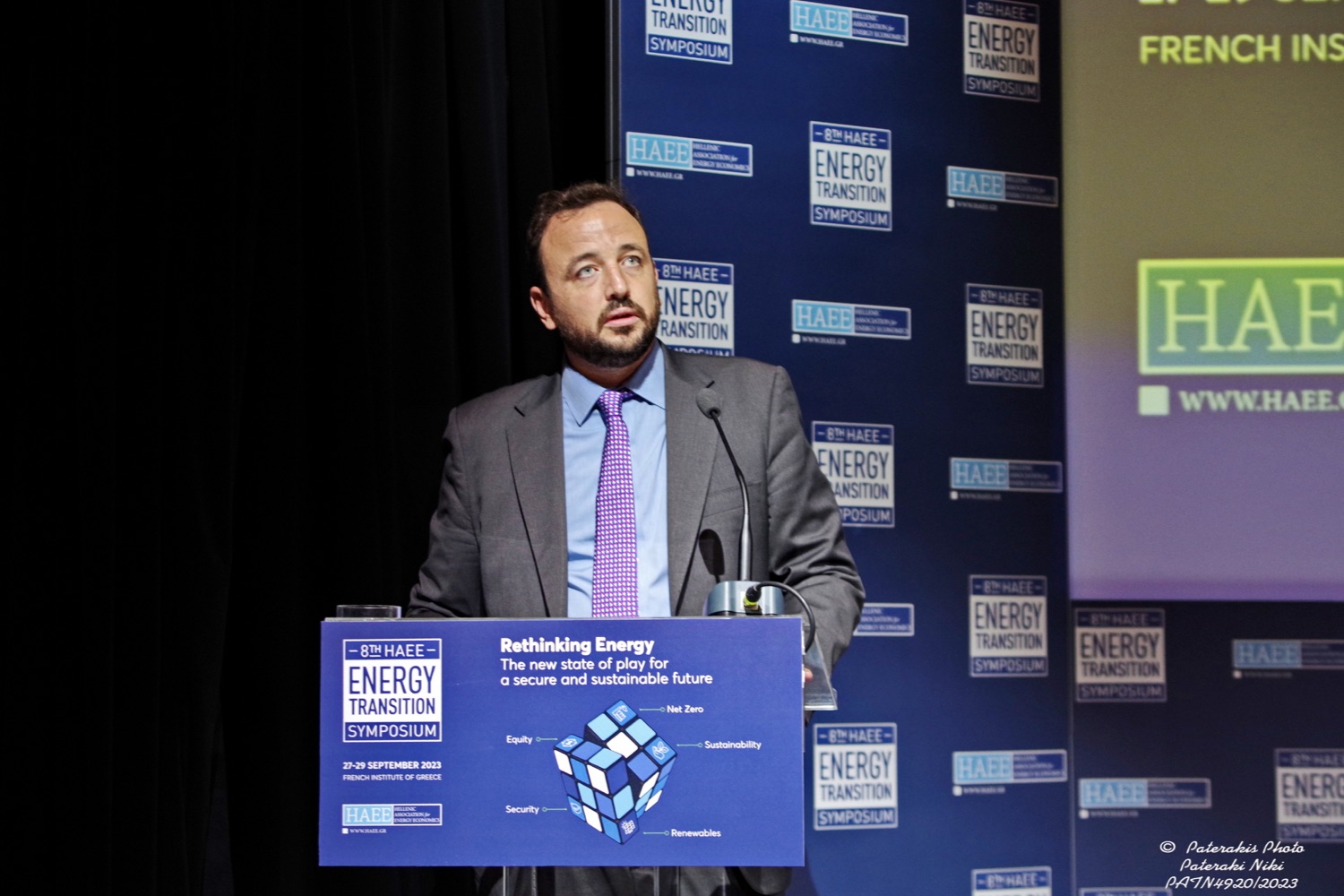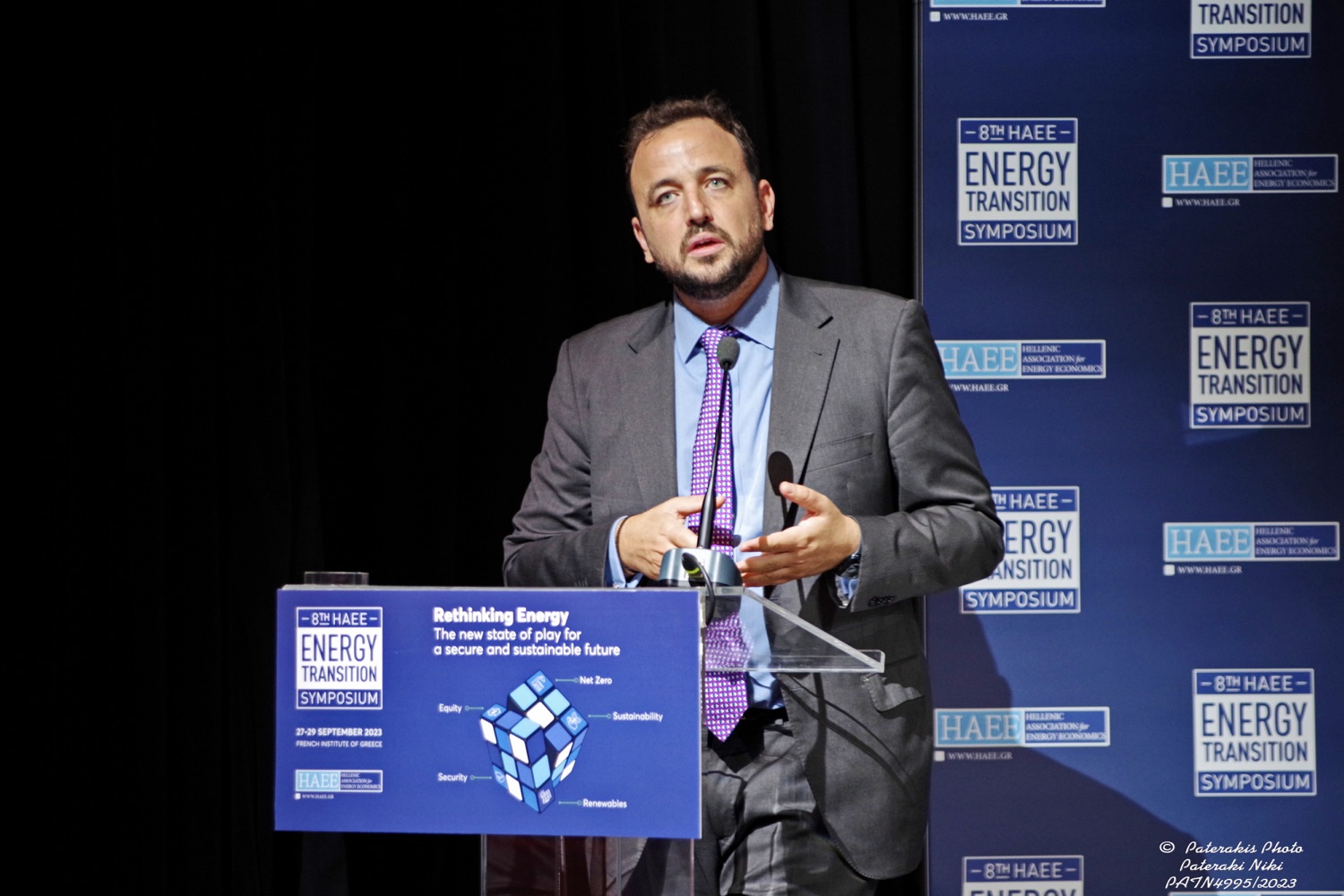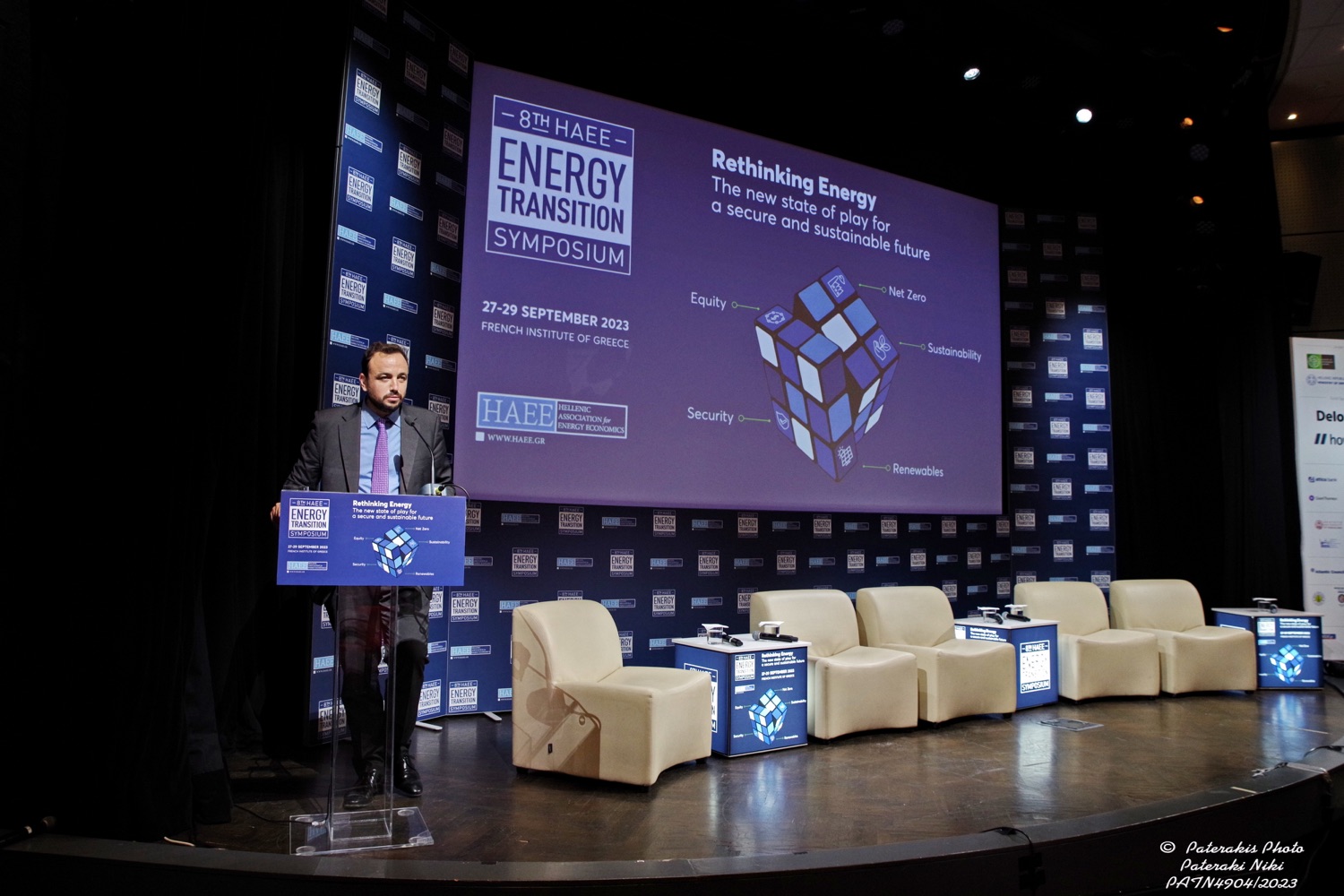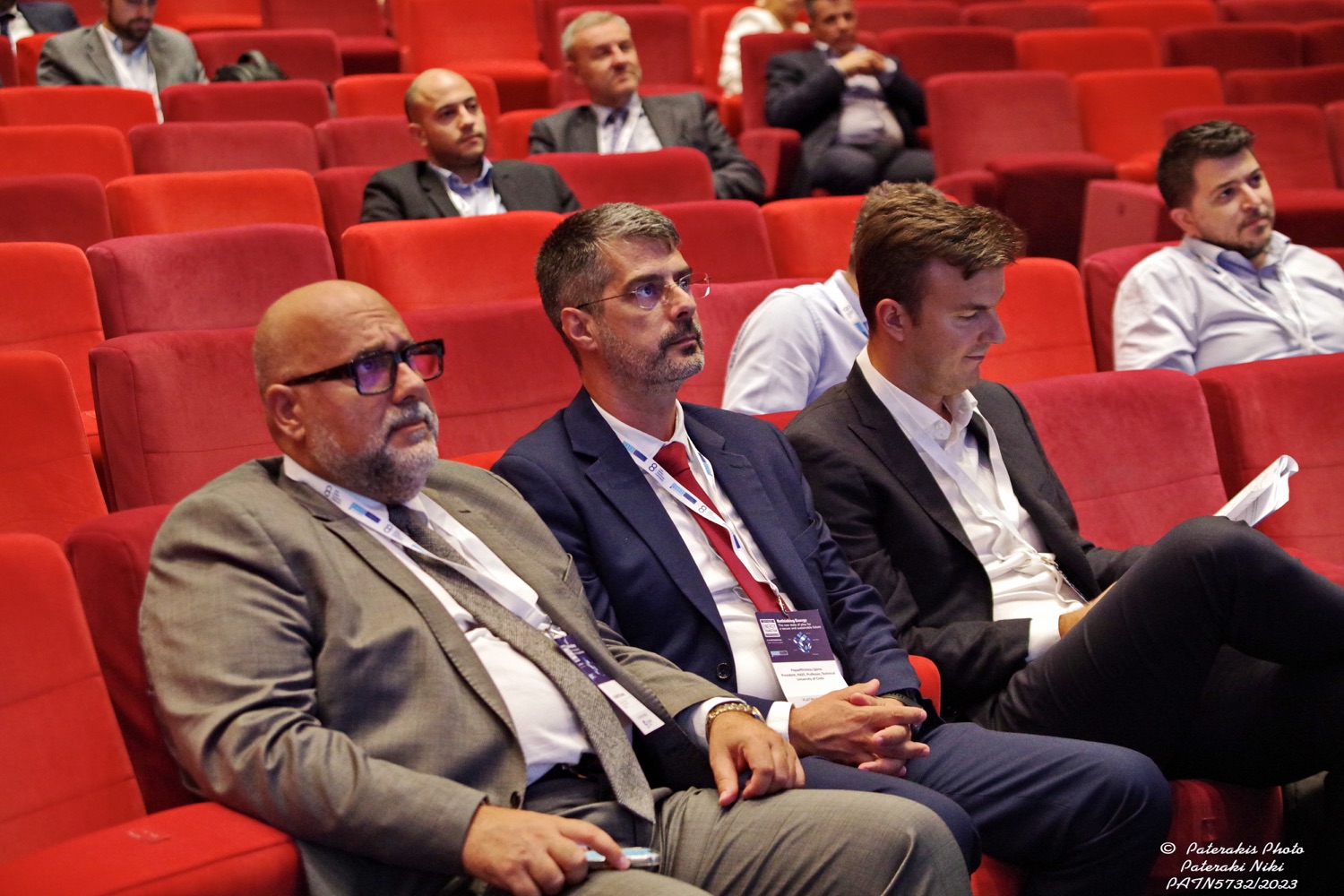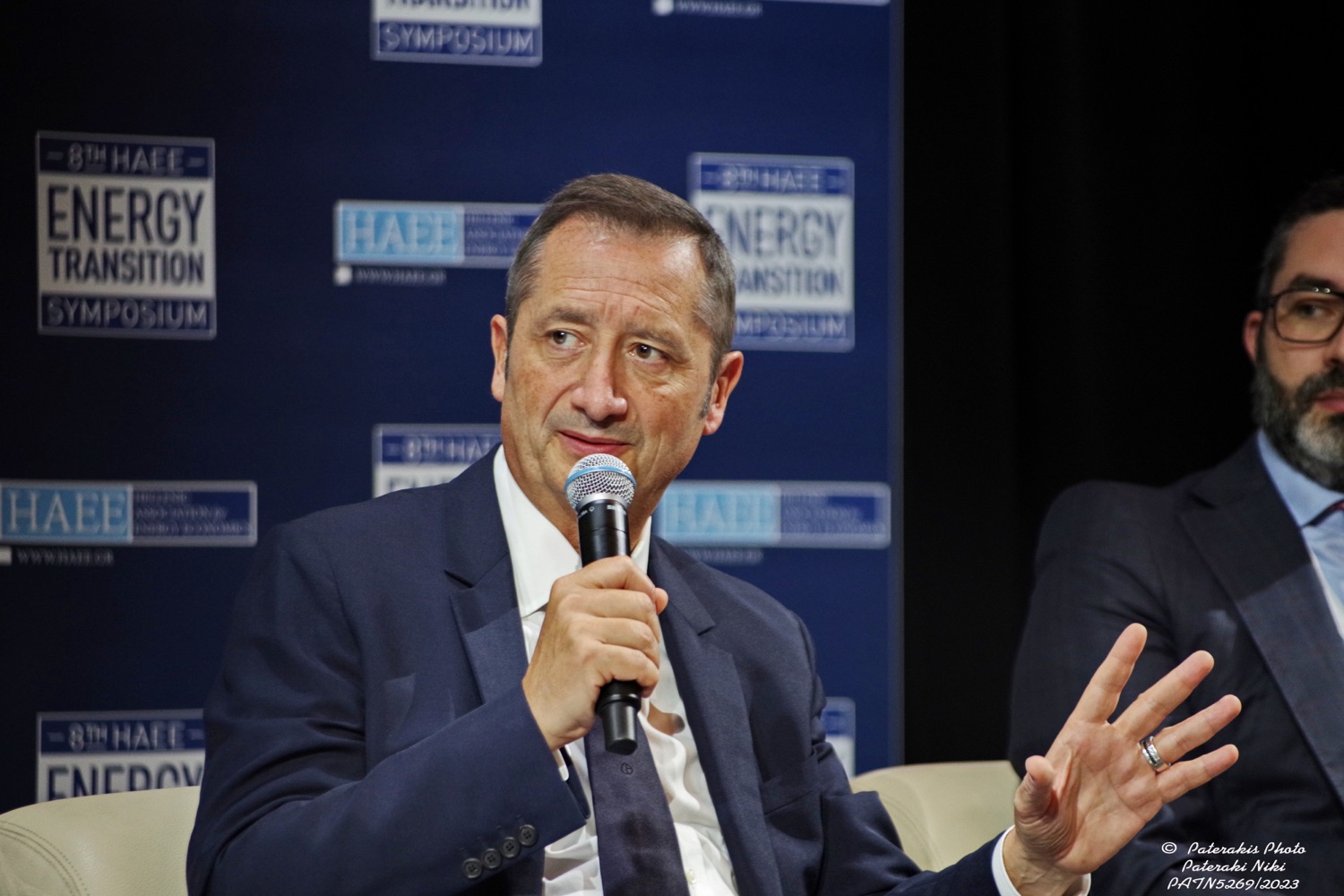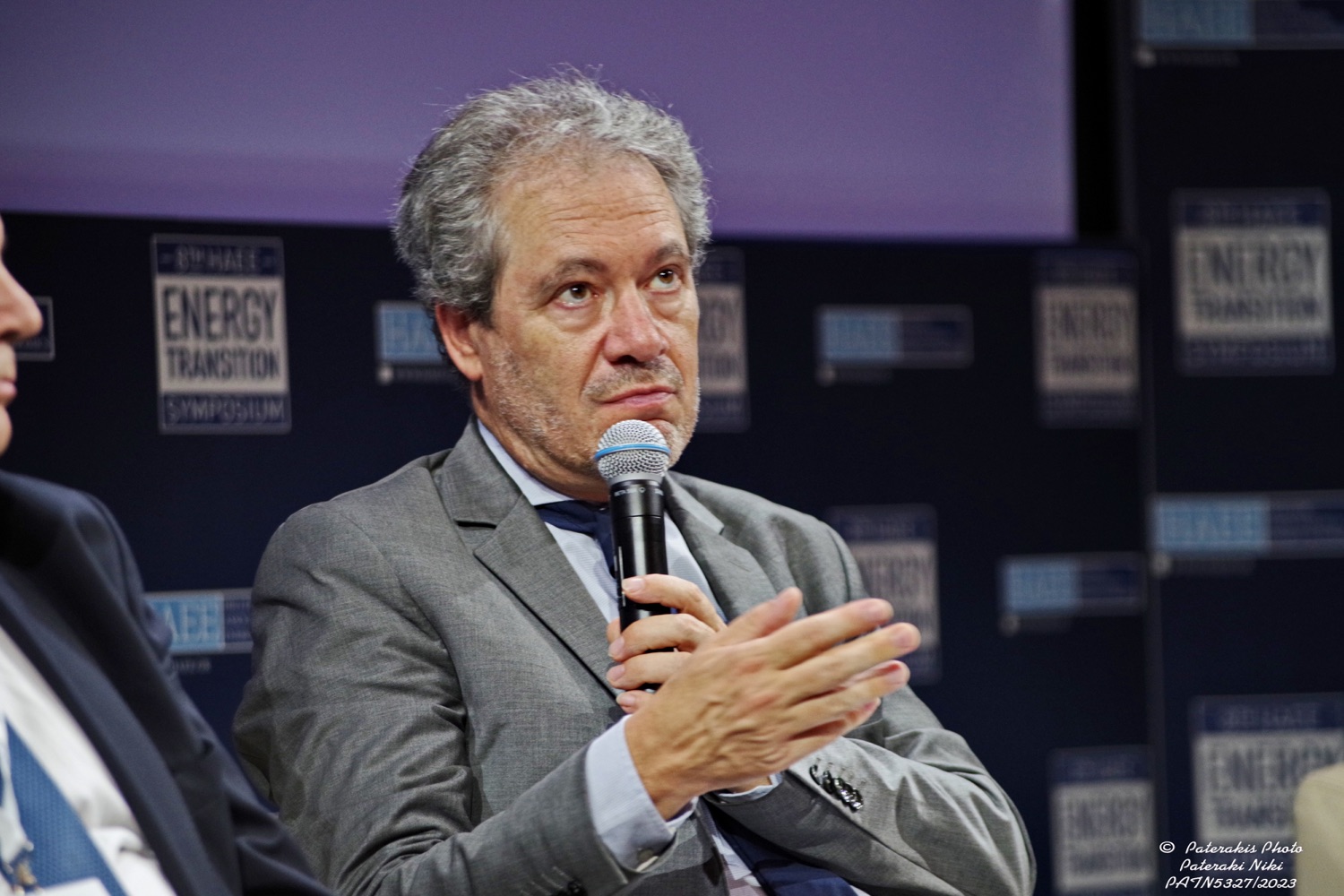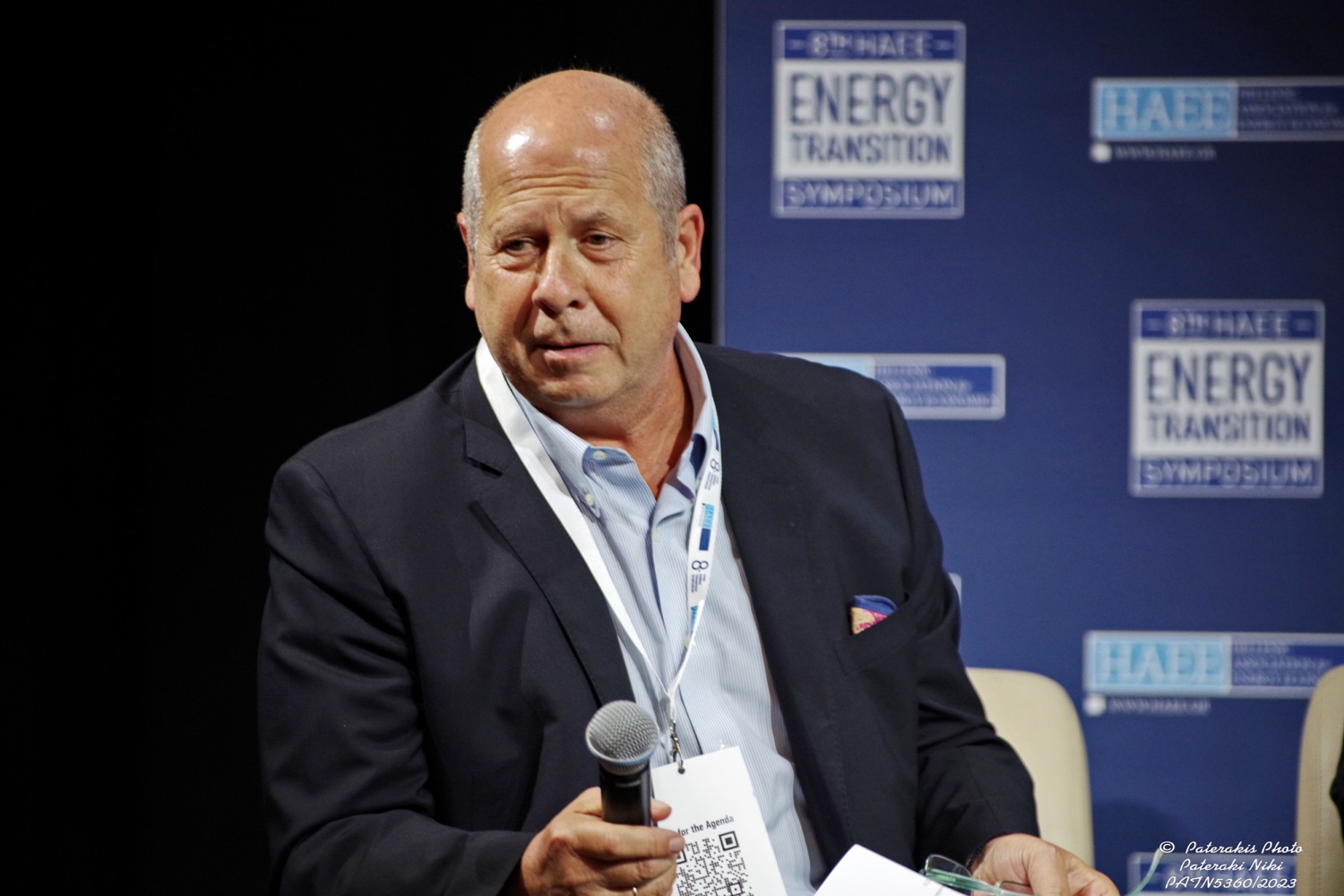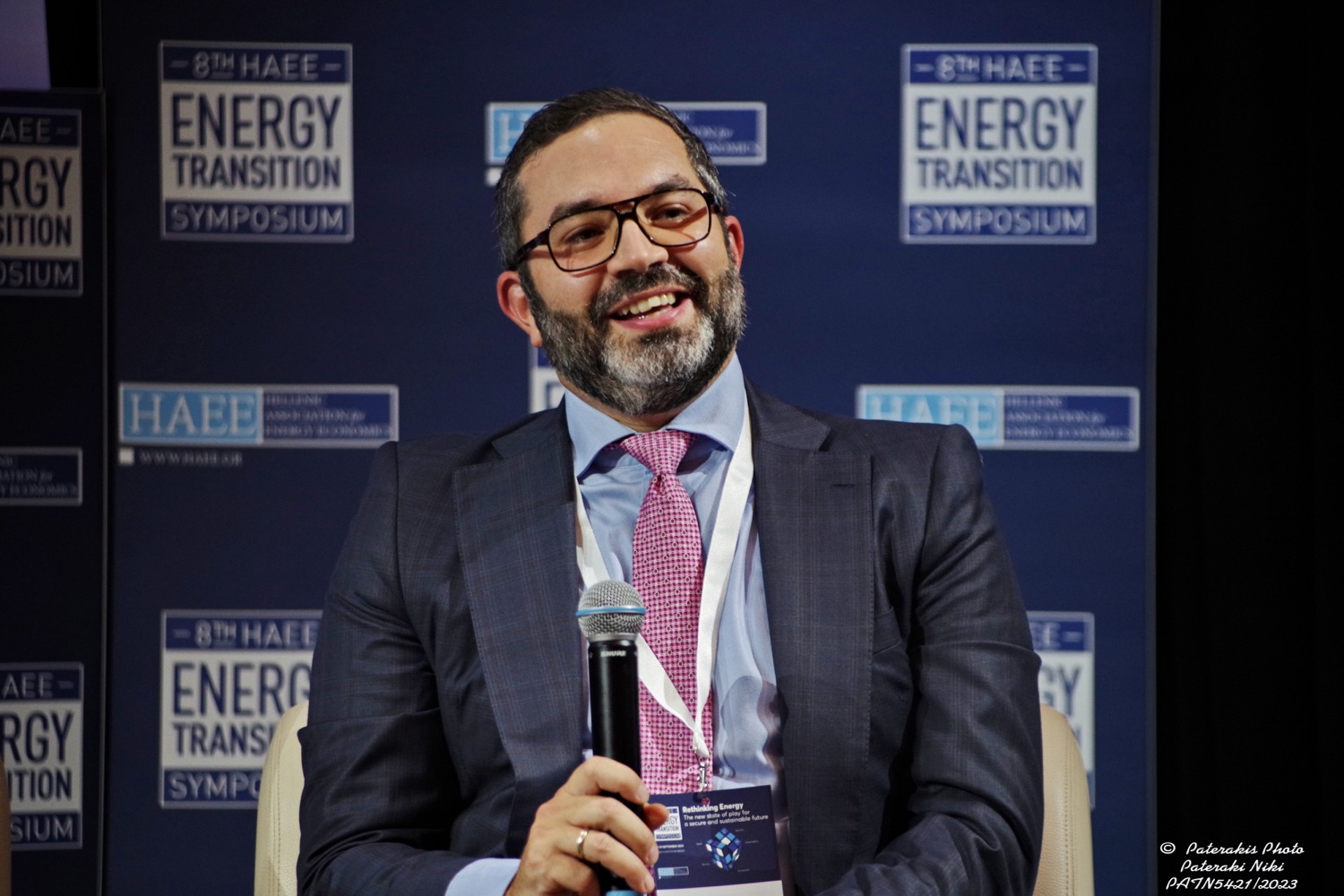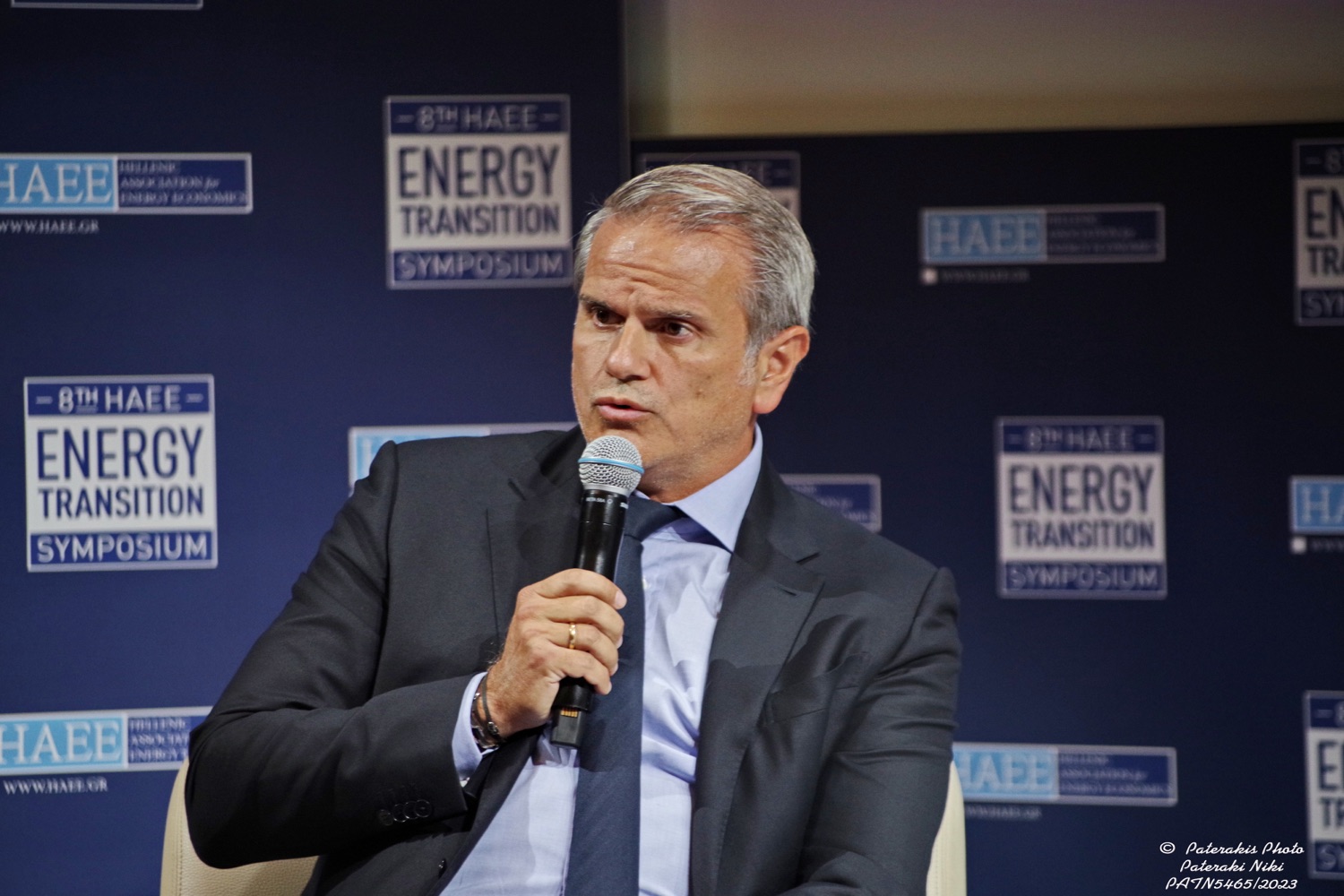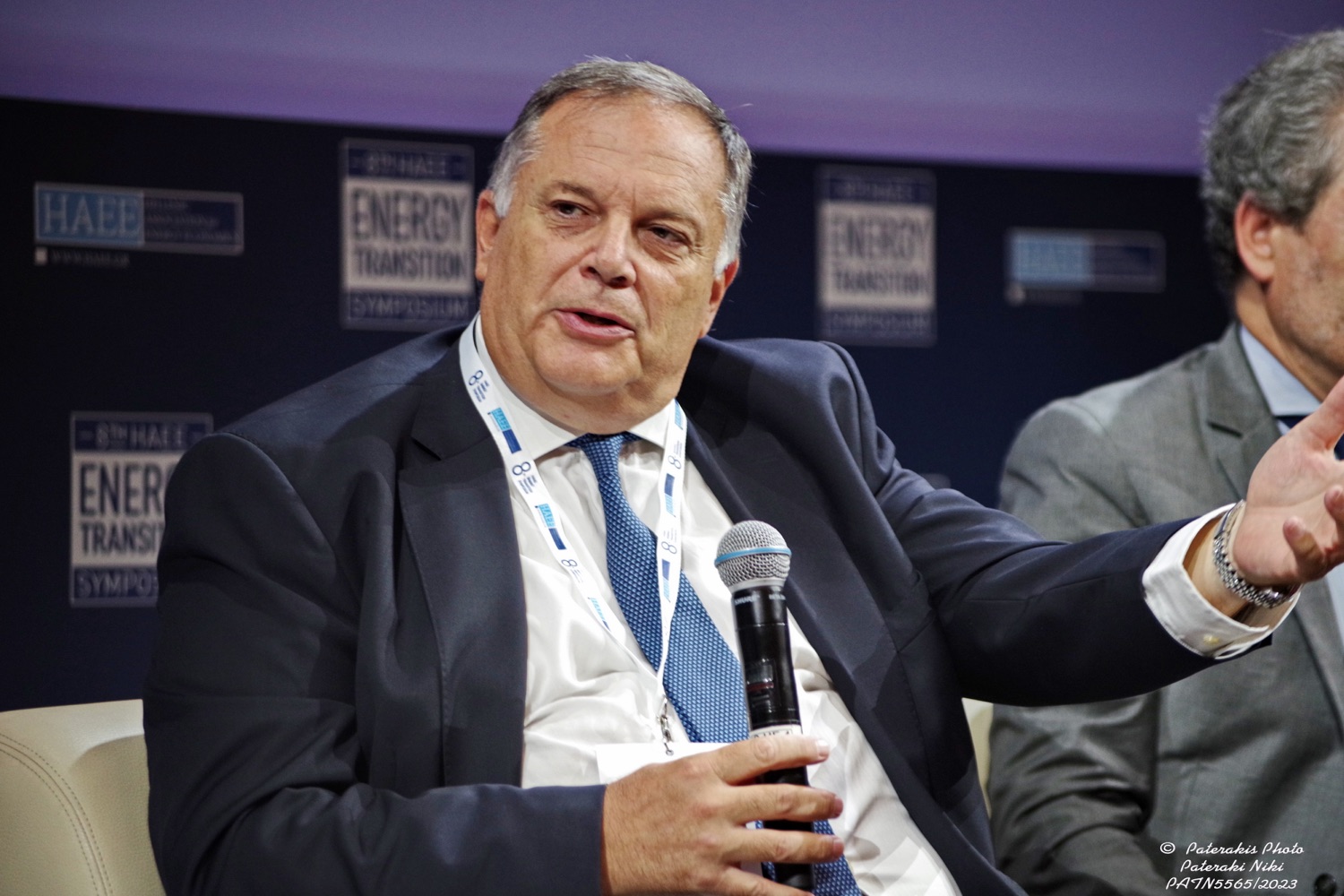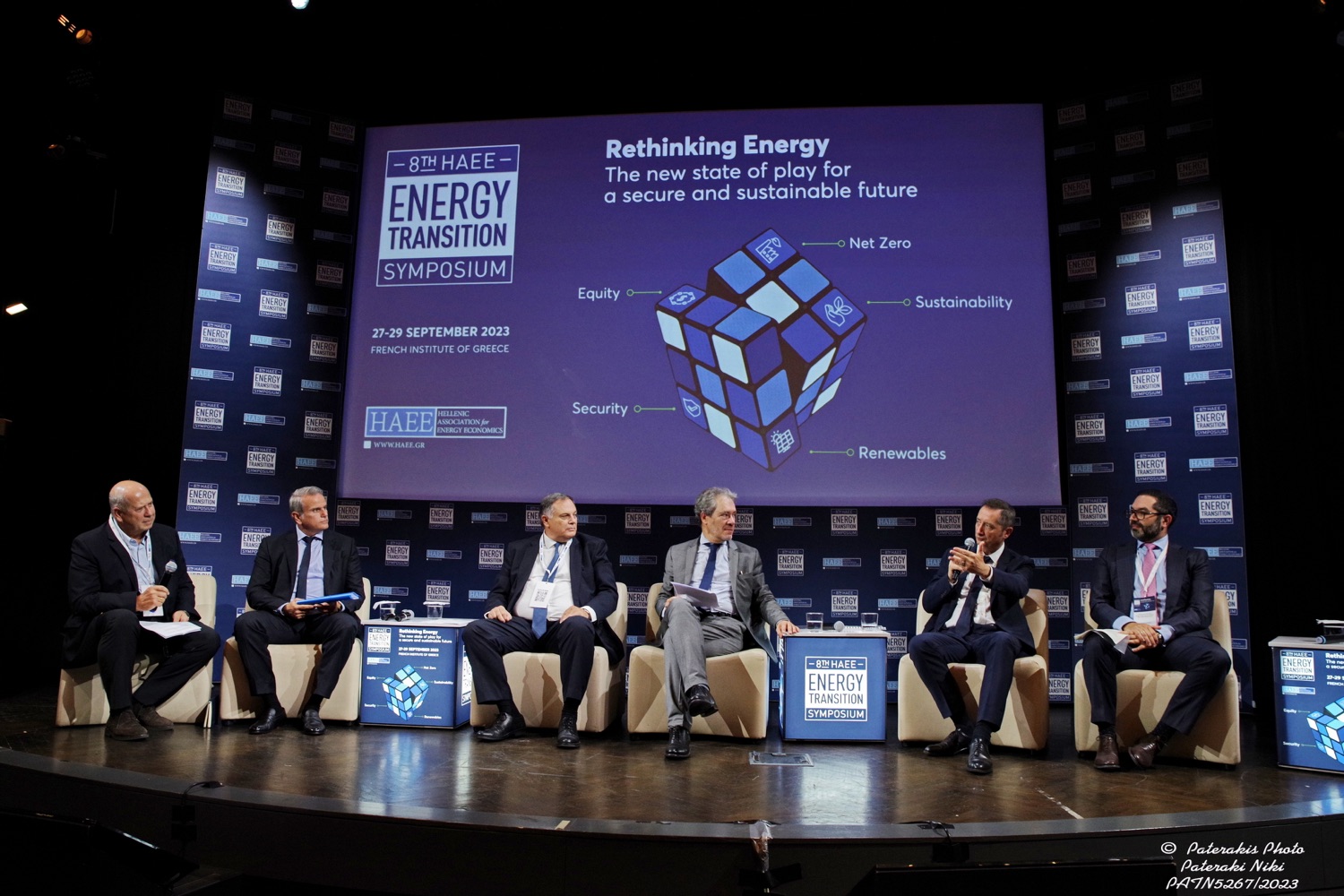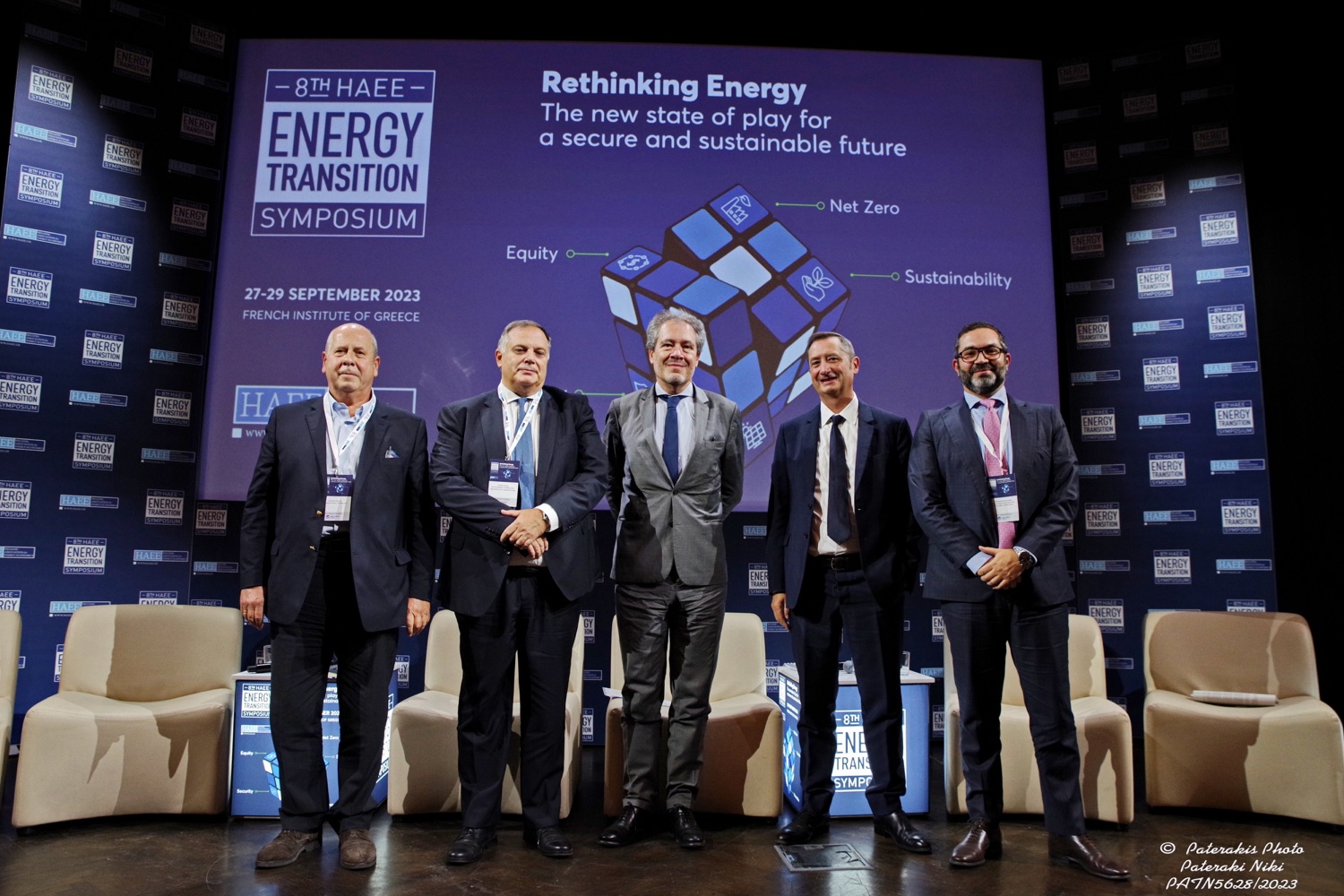Agenda
Day 1
Day 1 Wednesday 27.09.2023
Keynote Address 1: Decoding the Future of Greek Energy Market
During her keynote address on Decoding the future of the Greek Energy Market, Ms. Alexandra Sdoukou, Deputy Minister of Environment and Energy, discussed several key challenges and opportunities for the future of the energy sector of Greece. She highlighted the uncertainty regarding energy security for the winter season of 2023-2024, emphasizing the reduced dependence on Russian gas and increased diversification. Ms. Sdoukou also stressed the importance of accelerating the transition to a clean energy system to address the recent price volatility and achieve supply stability in the long-term. She mentioned the growth of renewable energy capacity, the need for energy storage, and especially the focus of the Ministry on offshore wind projects, as well as the critical role of materials in clean energy technologies. Additionally, she addressed the importance of enhancing the resilience of energy infrastructure against climate-related disasters and the need to redouble efforts in energy efficiency programs to reach targets. Overall, she reframed these challenges as opportunities for Greece to advance, create jobs, and become a pioneer in the global energy transition.
Alexandra Sdoukou
Deputy Minister of Environment and Energy, Hellenic Republic
Gallery
Keynote Address 2: The Role of Energy Democracy in the Transition
During his keynote address on the Role of Energy Democracy in the Transition, Mr.Fragiskos Parasiris, Member of the Hellenic Parliament, Iraklio; Director of Energy Sector, PASOK-KIN.AL., highlighted the need for a new approach to address the current energy crisis and emphasized the importance of energy democracy in the transition. He called for a transparent and inclusive governance model based on principles of openness and transparency. Mr. Parasiris stressed the critical role of citizens and social partners in energy planning to tackle issues like energy poverty, climate change, and intergenerational equality. He proposed principles for energy democracy, including fighting energy poverty and maximizing energy security. Additionally, he advocated for empowering consumers and promoting energy communities to drive social innovation and decentralized energy systems. Finally, Mr. Parasiris underlined the importance of a transparent institutional framework and urged collective action to address the energy crisis and secure a sustainable future, particularly for the generations to come.
Fragiskos Parasiris
Member of the Hellenic Parliament, Iraklio; Director of Energy Sector, PASOK-KIN.AL.
Gallery
Plenary 1: “Rethinking Energy Markets and Regulation”
On the RETHINKING ENERGY MARKETS AND REGULATION, RAEWW has stated that it has digitalized many of its services. It has developed pricing-cost comparison tools, energy-saving tools, customer complaints tools, and tools for the retail market. In similar way that companies like Amazon, Uber and Airbnb -that do not owe assets- they engage market players and create a Market-place, RAEEW engages consumers and creates a Consumer-Place. The necessity of the redesign of the electricity market in Cyprus was pointed out, especially in an isolated system, as Cyprus. It is required to minimize curtailment and increase RES, focus on upgrading transmission and distribution grids, develop energy storage, implement new cost-competitive hydrogen technologies and treat consumers as market participants and energy traders.
Athanasios Dagoumas
President, Regulatory Authority for Waste, Energy and Water Assoc. Professor, University of Piraeus
Andreas Poullikkas
Chairman, Cyprus Energy Regulatory Authority
Spiros Papaefthimiou (Moderator)
President, HAEE, Professor, Technical University of Crete
Gallery
Plenary 2: “Unleashing Greek RES Potential In The New REPowerEU Era”
On the UNLEASHING GREEK RES POTENTIAL IN THE NEW REPOWEREU ERA, the technical challenges regarding grid infrastructure, absorption of RES energy and physical space have been thoroughly discussed. the energy storage challenges have been underlined and the need for optimum use of these technologies. There is need to prioritize technologies to maximize the value and prioritize the timing in terms of investors who are ready to build. Moreover, fixed income in RES projects is of utmost importance and corporate PPA to reach the NECP target is a challenge, but achievable. Insurance has been transformed to support new technologies and a necessity for the industry to increase resilience, especially in such climate crisis.
Konstantinos Mavros
CEO, PPCR
Andreas Poullikkas
Head of Europe Area, Enel Green Power, President, SolarPower Europe
Thalia Valkouma
President and CEO, Faria Renewables S.A.
Panagiotis Doumas
Director and Member of the Executive Committee, Howden
Alexis Goybet
Country Manager, Voltalia Greece
Dimitris Pefanis (Moderator)
Manager, CNN Greece
Gallery
Plenary 3: “Energy Cooperation And Investment Drivers Towards 2030”
On the ENERGY COOPERATION AND INVESTMENT DRIVERS TOWARDS 2030, There is a need to redefine the insurance market to support the energy transition. As it is estimated the transition is poised to spark the greatest capital reallocation in a century, requiring an estimated annual investment of more than $9.2 trillion in energy and land-use systems. Insurance providers need to build strategic partnerships across the whole energy value chain and act proactively in mitigating risks, even without previously recorded data. There is a need to balance the urgency of decarbonization and energy transition with social justice and energy democracy, especially in the Global South. Functional technologies such as commercially available CCUS and globally available infrastructure such as ready-to-intake-green-energy ships and ports need to be employed to that end.
George J. Tsunis
United States Ambassador to the Hellenic Republic
Eleni Vrettou
CEO, Attica Bank
Dimitris Tsesmetzoglou
CEO, Howden Greece & Cyprus
Kostas Andriosopoulos (Moderator)
BoD Member, HAEE; Professor, Audencia Business School, CEO, Akuo Energy Greece
Gallery
Plenary 4: “Electricity Markets Transformation Pathways”
On the ELECTRICITY MARKETS TRANSFORMATION PATHWAYS, the financial support to large-scale RES investments brings down the production cost and the wholesale costs. Therefore the wholesale market could not support new capital-intensive investments. A full Net-zero system will need a balance between RES and sustainable gas-fired power plans with CCS or nuclear power. The Marginal Pricing Mechanism and the current market design is sound and provides flexibility and adaptability to all the recent crises the energy system faced. There is need to compliment the short-term markets with a long-term contracting framework.
Derek Bunn
Professor, London Business School; Founding Editor, Journal of Energy Markets
Nikos Frydas
Vice President, Grant Thornton Business Solutions
Bassam Fattouh (Moderator)
CEO, Howden Greece & Cyprus
Gallery
Plenary 5: “Energy Sector Transformation Through ESG Principles”
On the ENERGY SECTOR TRANSFORMATION THROUGH ESG PRINCIPLES, amid a series of policies aspiring to mitigate the multidimensional effects of climate change, reshaping the Energy industry to align with ESG principles has been absolutely necessary. DESFA SA – Hellenic Gas Transmission System Operator implements such policies into its business strategy and the overall value chain. Integration begins initiatives targeting the environment and climate change, human rights protection, engagement with communities, and strengthening of governance.
Fernando Kalligas
Director of Corporate Affairs, ESG & Communication, DESFA SA
Gallery
Plenary 6: “From Local To Global: Greek RES And Europe’s Energy Security”
On the CARBON-FREE FUTURE: HYDROGEN AND RENEWABLE GASES, the legal and regulatory framework is necessary to be modified and changed to promote hydrogen in EU. Easy to adapt rules and clear regulation are crucial towards this direction. Hydrogen should be considered as a storage solution and pilot infrastructure investments are needed. Cost effective solutions are of utmost importance and that will lead to paradigm shift. Hydrogen future is not a matter of sectors only but also a matter of regions. Regions with high renewable potential will lead the way to green hydrogen production.
Francois de Ricolfis
Head of the Regional Economic Service for SouthEast Europe, Embassy of France in Greece
Eric Scotto
Chairman and Co-Founder, Akuo Energy
Loukas Lazarakis
Head of Energy, Intrakat
Konstantinos Eleftheriadis
Partner, Energy, Resources & Industrials Leader, Deloitte Greece
Ioannis Karydas
CEO, Renewables and Battery Storage Business Unit, Copelouzos Group
Thomas Lamnidis (Moderator)
Managing Director, Lamnidis Law
Gallery
Keynote Address 3: “The Complex Geopolitical Reality and the Energy Transition”
During the discussion with Mr. Kostas Andriosopoulos on the Complex Geopolitical Reality and the Energy Transition, Mr. Geoffrey Pyatt, Assistant Secretary at the U.S. Department of State’s Bureau of Energy Resources, highlighted the significance of Europe’s energy transition and the need for diversification of energy sources in response to geopolitical concerns and emerging crises, particularly Russia’s actions in Ukraine. Mr. Pyatt also illustrated the substantial investments in clean energy technologies made by the U.S. government. These technologies include green hydrogen, solar power, and carbon capture among others. The conversation also touched on global gas supply, efficiency and demand dynamics, emphasizing the U.S.’s role in supplying LNG to Europe. Both parties expressed confidence in market stability. Energy security, including reducing dependence on Russian energy, was an overarching theme, illustrating the United States’ commitment to assisting Europe in achieving energy autonomy. Finally, the strong partnership between the U.S. and Greece in addressing these energy challenges was reinforced.
Geoffrey Pyatt
Assistant Secretary, Bureau of Energy Resources, U.S. Department of State (online)

